#they are their own characters but also are defined or driven by their loves
Explore tagged Tumblr posts
Text

it is such a mysterious place, the land of tears
#love and deepspace xavier#l&ds xavier#l&ds#love and deepspace#still thinking about all the little prince and xavier connections#not only the story of love and loss#but both characters being existential empathetic and reflective characters#they are their own characters but also are defined or driven by their loves#i just really love this book and literary connections ;-;#⋆.˚ ☾⭒.˚#ᯓ✧
7 notes
·
View notes
Text
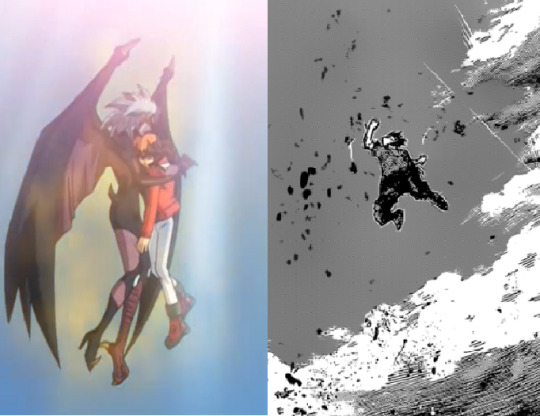
SHIGARAKI VS. YUBEL: HOW TO SAVE YOUR VILLAIN
The failure of Deku to save Shigaraki isn’t just a tragic conclusion for Shigaraki’s arc, it’s also My Hero Academia failing as a story. When I say the story failed, I mean the story has failed to answer any of the questions it asked its audience. It’s themes, character arcs, everything that communicates the meaning of the story to the audience is no longer clear.
Saving Shigaraki was the central goal of not only the story itself, but the main character Deku. By failing in its goal you can’t call this a good ending. In order to illustrate why this goal of saving the villain is so important to both Deku’s character and the central idea of MHA, I’m going to provide a positive example in Yu-Gi-Oh GX were the main character Judai successfully saves their villain. One of these stories fails, and the other succeeds. I will illustrate why under the cut.
BROKEN THEMES = BROKEN STORY
When artists draw they have to consider things like perspective, anatomy, shading, light, coloring. Drawing has rules, and it’s hard to produce good art without knowing these rules beforehand. If I draw something that has bad anatomy, you can criticize me for that.
Writing has rules, just like drawing. The rules of storytelling are important because writing is an act of communication. You can write whatever you want, just like how you can draw whatever you want, but if you break the rules the audience won’t understand what you are trying to communicate.
When I refer to MHA as a broken story, I am referring to the fact that it has broken the rules of storytelling. As this youtuber explains.
“I guess we should first define what broke and broken even means in this context. Has the story turned into an unintelligible mess? Not really. Value judgements aside, the narrative is still functional and fulfills the criteria of being a story. So how can a story that still functions be broken? Maybe to you it cannot. But to me a story that is still functional isn’t enough. What I mean when I say MHA is broken is that it’s lost something crucial. A codifying style of structure, pacing and payoff that until a certain point was the core of its identity.”
I could launch into a long-winded explanation of what themes are, but for the sake of simplicity I like to define themes in terms of “Ask, and answer.” The author asks a question to the audience, and then by the end of the story provides an answer. The audience is also invited to come up with their own answer which prompts them to think about the story on a deeper level. The question both MHA and GX are asking both its main characters and the audience is “Can you save the villain?” with the additional complicated question of “Should you save the villain?” This post will detail how both stories go about answering those two questions, and more importantly why those answers matter for the story.
With Great Power… You know the rest.
My Hero Academia and Yu-Gi-Oh Gx are actually similar stories once you get past their superficial differences. MHA is a story with way better worldbuilding, compared to a society where everything revolves around the trading card game, and people go to school to be better at a trading card game.
However, if you get past that. They are both bildungsroman, stories about the main characters growing up into adults. They both have an academy setting where the goal is for the main character to graduate and enter the adult world. They are both shonen manga. GX is the sequel of Yu-Gi-Oh a manga that ran in Shonen Jump the exact same magazine as MHA. The biggest point of comparison is their main characters, who both start out as young and naive who are driven by their admiration of heroes. Deku is a fan of All Might who wants to become a hero despite not having a quirk, because he loves All might who saves everyone with a smile. Judai’s entire deck archetype revolves around “Elemental Heroes’ and later “Neo-Spacians” who are all based on popular sentai heroes like ultraman.
The central arc for both characters is to grow up. Growing up for both of them not only requires figuring out what kind of adult they want to be, but also what kind of hero they want to be.
Now I’m going to drastically oversimplify what a character arc is.
A character arc first starts out with the character being wrong. Being wrong is essential because if the character is right from the beginning, then there’s no point in telling the story. A character often holds the wrong idea about the world, or has some sort of flaw that hinders their growth. The narrative then needs to challenge them on that flaw. It usually sets up some kind of goal or win condition. That flaw gets in the way of a character “winning” or achieving their goal, so they need to fix that flaw first. If their ideals are wrong, then they need to think about what the right ideals are. If they’re too childish, they need to grow up. If they have unhealthy behaviors or coping mechanisms, they need to unlearn it and require better ones. Otherwise, that flaw will keep sabotaging them until the end.
I’m borrowing the word “win condition” from class1akids here because it’s an incredibly appropriate terminology. Midoriya needs to do “x” in order to win, otherwise this victory doesn’t feel earned. The “x” in this case is usually character development. As I said before, a story where the main character hasn’t changed from beginning to end feels pointless. Especially in Deku’s case, he was already a brave, strong hero who would charge right into battle and defeat the bad guys in chapter one, so him defeating Shigaraki in a fist fight doesn’t represent a change.
The story sets up not only “What does the hero need to do to win?” but also “How does the hero need to change in order to win?” A character either meets these requirements before the end of the story, or they don’t and usually this results in a negative ending.
MHA in its first half quite clearly set up both the final conflict of saving the villains, and also that saving the villains is its “win conditions.” The hero shouldn't be allowed to win without first fixing this flaw.
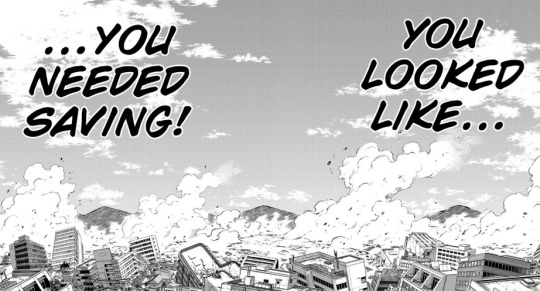
From this panel onward the central question Deku is forced to answer shifts from “Am I strong enough to defeat ShigarakI” to “Can I save Shigaraki?” However, much earlier than that All Might goes on to basically set up the win conditions of what makes the ultimate hero as someone who “Saves by winning, and wins by saving.”
All might: You can become the ultimate heroes. Ones who save by winning, and win by saving.
Therefore the story has set it’s criteria for what kind of hero Deku needs to become. If he wins without saving, then he’s failed to become what the series has set up as the Ultimate Hero.
Shigaraki and Yubel aren’t just narrative obstacles, or boss monsters to be killed like in a video game. They are narrative challenges, which means that the character can’t grow in any way if they don’t answer the challenge presented by the characters. They are villains who actively resist being saved, to provide a challenge for two heroes who define their heroism by saving others. The challenge they pose adds a third question to the story and the main characters.
"Can I save the villain?"
"Should I save the villain?"
"If I don't save the villain, then can I really call myself a hero?"
In other words the decision they make in saving, or not saving their final antagonist defines what kind of hero they are. In Deku’s case it’s even more critical he defines what hero he wants to be because the MHA is also a generational story, and several of the kids are asked to prove how exactly this generation of heroes is going to surpass the last one. The kids growing physically stronger than the last generation isn’t a satisfactory answer, Deku getting strong enough to punch Shigaraki hard is not a satisfactory answer, because we are reading a story and not watching a boxing match.
I’m going to focus on the last two questions though for a moment. Many people who argue against saving villains like Shigaraki argue he is a mass murderer and therefore isn’t worthy of salvation. However, the act of saving Shigaraki isn’t a reflection of Shigaraki himself, but rather the kind of hero Deku wants to be. It all boils down to Spiderman. In the opening issue of Spiderman, teenage Peter Parker is bitten by a radioactive spider and suddenly gains super strength, the ability to stick to walls along with other powers. However, being a teenager he uses these powers selfishly at first. He doesn’t feel the obligation to use his powers for other people, and therefore when he sees a robbery happening right in front of him he lets the robber go. However, because he lets the robber go, the robber then attempts to hijack a car and kills his Uncle Ben in the process. If Spiderman had stopped the robber then he might have prevented that from happening. He had the power to stop the robber, but he didn’t feel responsible or obligated to save other people. As a result Uncle Ben dies. It’s not enough to have power, ti’s how you use that power that reflects who you are, therefore: “with great power comes great responsibility.”
The choice to save Shigaraki actually has little to do with whether or not Shigaraki is redeemable, but rather how Deku chooses to use his power, and what he thinks he is responsible for reflects who Deku is as a person. Deku himself also clearly outlines how he wants to use his power, that One for All is a power for saving, and not killing.
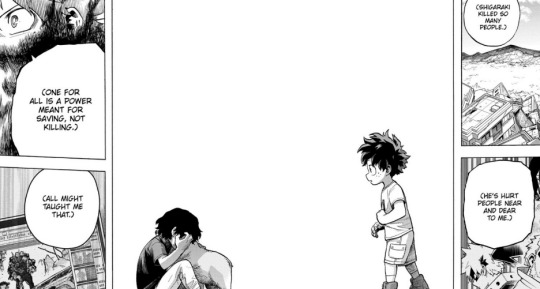
How he uses his power reflects Deku’s ideal in saving others, and therefore if he doesnt use his power to save, then he’s failed to live up to his ideals. It's not whether it's morally right to save a murderer like Shigaraki, but rather the way Deku wants to choose to use his power. It's about whether he feels the responsibility to save others.
Judai explores an incredibly similar arc to Deku. They are basically both asked what kind of responsibilities a hero is supposed to have, which is also a metaphor for growing up to handle the responsibilities of adulthood. As both characters start out with incredibly naive and childish ideas about what a hero is. Therefore realizing what a hero is responsible for is key to them growing as a character. However, Judai is different from Deku. In some ways he’s more like Bakugo. Judai is a prodigy who’s naturally good at dueling. He doesn’t duel to save others, but rather because duels are fun and he’s good at it. He’s very much like Bakugo, who admired All Might as a hero just as much as Deku did, but admired the fact that he was strong and always won rather than he saved others.
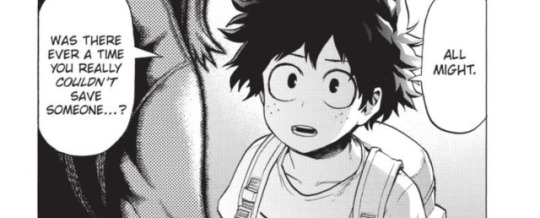
However, I would say both Deku and Judai are questioning what a hero is responsible for. They are both asking if they have the responsibility to use their power to save others. If they have to fight for other people, just because they have power. His first big challenge as a character comes from Edo Phoenix, who calls out Judai for not thinking through what it means to be a hero, and what responsibilities heroes carry. Judai duels because he thinks it’s fun. He will show up to duel to help his friends, but that’s because he’s the most powerful person in the group. Even then it’s because he finds fighting strong opponents to be enjoyable. Bakugo will beat up a villain, but for him it’s more about winning then if the action will save someone or not.
Judai is more often than not pushed into the role of being a hero, he doesn’t play the hero because he’s a particularly selfless person, and he’ll often avoid responsibility if not forced. He has power but no sense of responsibility and the narrative calls them out as a problem.
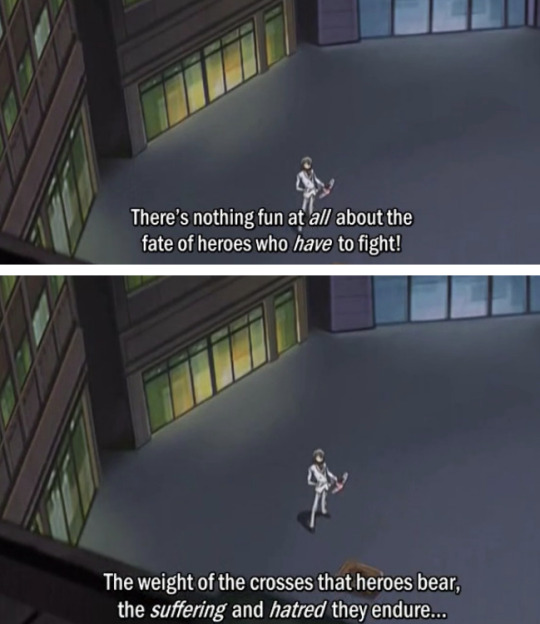
Edo: Can you even fathom that, Judai?
For Judai, he can’t understand the responsibility of being a hero. For Deku, he idealizes heroes so much he can’t understand that there are people out there the heroes have failed to save. These two callouts towards Deku and Judai are discussing similar because they’re both discussing where a hero’s responsibilities lie. Is a hero responsible for saving everyone? Is someone strong like Judai responsible for using their strength to help other people?
Judai’s arc continues into the third season where he’s not shown to just be naive but ignorant. He’s not just childish, he actively resists growing up because he doesn’t want to take on adult responsibilities.
THe same way that Deku just decides not to think about whether or not All Might failed to save people in the panels above. However, in Judai's case he's actively called out for his choice to remain ignorant.
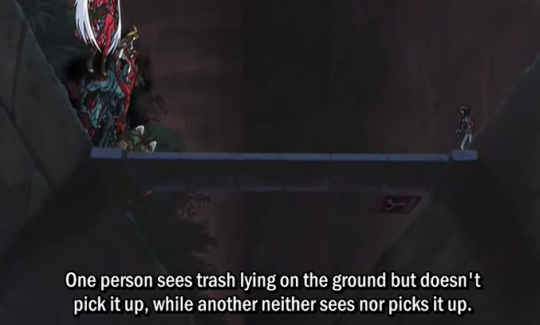
Satou: Now, which one is at fault? Judai: Isn’t it the guy who saw it, but didn’t pick it up. Satou: Not quite. If one is aware of the trash that fell, it may be picked up someday. But there is no possibility fo the unaware one ever picking it up. Judai-kun you are the foolish one unaware of the trash that has fallen. Judai: Are you calling me out for how I am? Satou: Your behavior towards me was atrocious. The worst was attending class only for credit, even if you were there you only slept. Judai: Yeah, I know. I was all bad, but it wasn’t that big a- Satou: It is important. You see, one by one, the students inspired by your attitude were losing their motivation. Now if you were a mediocre duelist, then this would not be an issue. Satou: However, you are the same hero who defeated the three mythic demons. Every single student in the academy admires you. You should have been a model for this academy. Judai: Me, a role model? Are you kidding? I just do whatever I feel like doing. Satou: Great power comes with great responsibility. Yet, as you remain unaware of that, you’ve spread your lethargy and self-indulgence.
seems like a minor issue, but look how Judai responds to the accusations. “I just do whatever I feel like doing.” Satou is arguing that Judai should pay attention to the influence he has on others because of his power, because how he chooses to use that power affects others. However, Judai chooses to actively not look at the consequences of his actions because he doesn’t want to take on that level of responsibility, and therefore he’s looking away from the trash.
While it seems like it doesn’t matter in Satou’s specific example, not thinking of the consequences, or how you use your power can have unexpected consequences. Spiderman doesn’t feel like it’s his responsibility to stop a bank robber, and that bank robber shoots his uncle. You could still argue it’s not Spiderman’s responsibility to stop every crime in the world, and I guess no one owes anyone anything from that point of view - but Spiderman failing to act responsibility had the consequence of directly hurting someone else.
Spiderman has to live with that consequence because it was his own Uncle that was hurt. This is where we really reach the duality of Judai.
In GX, Judai is, symbolically speaking, The Fool of the Tarot Deck, the Novice Alchemist — a person brimming with infinite potential, yet one who is also supremely ignorant, who walks forward with his eyes closed and often unknowingly causes harm in his great ignorance. In this, he is very much the embodiment of the faults we most commonly associate with teenagers — selfishness, recklessness, shallowness, a lack of dedication or empathy when it’s most needed. Like most people, he has good traits that work to balance out some of the above, but his narrative path through GX ends up being that of the flawed hero undone by his faults — and then that of the atoner, the repentant sinner. In his case, the mistakes of his teenage years are the catalyst for his growth from a boy into a man burdened with duty and purpose. Judai is someone with infinite potential, with great power, but also ignorant on how he should use that power, and that makes him an incredibly flawed hero who needs to learn how that power should be used.
Deku similarly exists in a society where heroes deliberately turn a blind eye to the suffering of a certain type of victim. Shigaraki’s speech heavily resmebles Satou’s speech about garbage on the side of the road.
Shigarali: "For generations you pretended not to see those you coudln't protect and swept their pain under the rug. It's tainted everything you've built."
Deku shares Judai’s ignorance, because he’s not only a part of a system that doesn’t even see trash on the side of the road, but he also worships heroes so much that he’s incapable of criticizing them. If Deku saw the flaws of heroes, but at first didn’t have the courage to speak out, but eventually gained the courage that would be one thing. However, if he doesn’t see the flaws of heroes, then the problem will never be fixed.
There are also consequences for both Judai and Deku failing to use their powers responsibly. These consequences take the form of the villains who came about because of all of society’s ignorance to the suffering of victims (Shigaraki) and because of the main character’s ignorance to their suffering (Yubel). Shigaraki and Yubel are also explicitly victims that the heroes failed to save, turned into villains who are active threats to the heroes.
Should I save the villain?
The answer is yes, because the decision to save is reflective of the kind of hero each character wants to be. Each story clearly sets up that Deku and Judai aren’t punisher style heroes who shoot their villains, they are being set up as heroes who save. Deku needs to “save by winning.” As for Judai, a big deal is made of Judai’s admiration for another character Johan who represents a more idealistic kind of hero. Johan unlike Judai is someone who duels with a purpose, something Judai outright says he admires because he’s empty in comparison.
Judai: Johan what have you been dueling for? See, it’s about fun for me… Well, for the surprise and happiness too. I guess I do do it for the fun. Sorry, I guess I put you on the spot by asking out of nowhere. Johan: What’s this about Judai? Judai: It’s nothing. Johan: I suppose there is one goal I have. Johan: Even if someone doesn’t have the power to see spirits, they can still form a bond with a spirit. That’s why I do it for people like him. [...] Johan: I'll fight for everyone who believes in me, and I'll do it with my Duel Monsters. Judai: I'm jealous you've got feelings like those in you.
Becoming a hero who uses their power to help others isn’t just a goal the story sets for Judai, it’s a goal that Judai sets for himself because of his admiration for Johan. Johan represents the idealistic hero Judai wants to be, but is also held back from because of his personality flaws. Johan represents the kind of heroic ideal that Deku is aspiring to be.
Johan’s ultimate goal isn’t punishing the wicked, but to use his power to save others.
Johan: Judai, it was my dream to save everyone through my dueling!
The story sets up the idea that it’s not enough for Judai to simply be strong, he’s also challenged to become a savior who uses his power to help others like Johan. Deku needs to “save by winning” and Judai needs to “Save everyone through his dueling.” However, Johan also adds another condition to what saving means. His idea of saving isn’t to defeat a villain, but rather his dream is to help connect spirits and humans together, even if there are humans who can’t see spirits. Johan doesn’t save people with the power of physical force, but rather the power of human connection.
Should I save the villain?
Here the answer is "Yes", because wants to become more like Johan someone who uses their power to help others not just for themselves. Then we reach the third question
If I don't save the villain, can I really call myself a hero?
It once again comes to power and responsibility. Heroes have great power, and they are responsible in how they use that power, if they use it irresponsibly then there are consequences. Shigaraki wants to destroy hero society, because the heroes irresponsibly use their power to turn a blind eye to everyone’s suffering.
People suffer when heroes fail to live up to their responsibilities. The entire conflict of season 3 is created by Judai failing to save Yubel. If Judai had helped Yubel when they most needed it, instead of abandoning them, then Yubel would never have been twisted by the light of destruction, would never have attempted to teleport the school to another dimension, would never have attacked all of JUdai’s friends.
These consequences matter. Deku can turn his eyes away from Shigaraki’s suffering, but let’s say a hero failed to stop a robbery, or rather he didn’t even try, and because of that his mom was shot and died in the street. Would Deku consider the man who failed to stop a bank robbery a hero? When Spiderman let a bank robber go instead of trying to stop him, was he being a hero in that moment? Both the stories and the characters themselves have defined heroes as people who use their powers to save others, therefore if Judai and Yubel fail to save their villains then they can’t be called heroes by the story’s own definition. Now let’s finally return to the question of "Can I save the villain?"
Was there ever someone you couldn’t save?
m going to start with Yu-Gi-Oh Gx as a positive example of how to save your villain. Gx works for two reasons. One, it’s established from the start that Yubel isn’t beyond salvation, and two, it makes it so Judai can’t win without saving Yubel. The conflict of the story does not end until Judai makes the decision to save Yubel. In some ways the writing is even stronger because Judai is directly responsible for the pain and suffering that Yubel went through that turned them into a villain in the first place. Yubel isn’t just a victim, they’re specifically Judai’s victim.
Yubel is a duel spirit who is also essentially Judai’s childhood friend. A duel spirit just like the kind that Johan wants to save. During their childhood Yubel got too overprotective of Judai, and started to curse his friends for making him cry or upsetting him in any way. Until everyone Judai’s age started avoiding him and Judai became all alone with only Yubel for company. Judai’s decision was to abandon Yubel at that time. He took the yubel card and shot them into space, hoping that being bathed in space rays will somehow “fix” what was wrong with them. I know that’s silly but just go with it. Judai abandoning Yubel had the unintended consequence of Yubel being subjected to the light of destruction, a corrupting light that subjected Yubel to years of pain. This pain literally takes the form of Yubel burning alive.
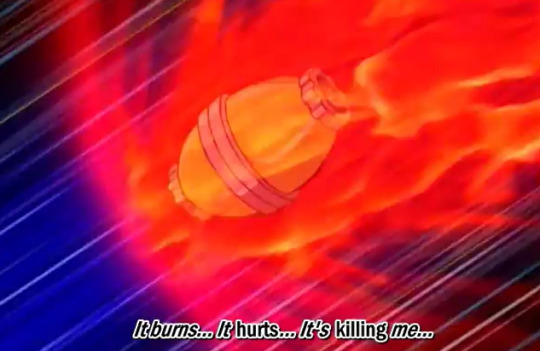
Yubel connected to his dreams called out for Judai every night, only for Judai’s parents to give him surgery that repressed his memories of Yubel causing him to forget them entirely. Yubel then spent the next ten years alone in space, continuously subjected to painful torture, with their cries for help being ignored.
"I was suffering even as you came to forget about me..."
Yubel is then met with the question of how can Judai treat them this way if they loved him so much? As from Yubel’s perspective, they’ve only ever tried to protect Judai, only for Judai to not only throw them away, but subject them to painful torture and ignore their cries for help. Judai effectively moves on with his life, goes to duel academy, makes friends while Yubel is left to suffer in silence all but forgotten. This is where Judai’s ignorance has serious plot consequences.
It’s not just the pain that Yubel endured that made them snap. It’s that their pain went ignored.
Yubel holds out the faint hope that Judai will answer their calls fro help until they finally burn up upon re-entry into earth’s orbit. At which point they’re left as nothing more than a single hand crawling on the ground. Yubel who cannot fathom why Judai would cause them so much pain, and then forget about them, convinces themselves that Judai must be causing them pain, BECAUSE he loves them.
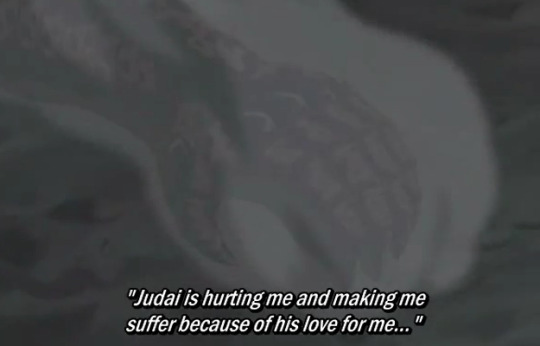
But you see, I couldn't possibly forget about you in the time that I've suffered...
Judai is allowed to move on with his life, to make friends, to spend the next ten years doing so while Yubel is subjected to ten years of agony. When they finally escape their painful torment, they see all the friends Judai has made while they’re left alone and forgotten. However, Yubel’s goal isn’t revenge. Rather, it’s to make Judai share and recognize their pain. WHich is why I said it’s not the fact that they were made to suffer, but their suffering is ignored. Yubel’s entire philosophy revolves around the idea that sharing pain is an expression of love, and that they and Judai share their love for each other by hurting each other.
"That's why I sought to fill all those linked to you, your world, with both sadness and anguish..."
For Yubel, making all of Judai’s friends suffer and Judai themselves suffer is a way of making them and Judai equals again. They want to show “their love” for Judai, but it’s more about forcing Judai to recognize the pain he’s caused them by forcing him through the same pain. Yubel’s philosophy of sharing pain is actually a twisted form of empathy.
They’re not entirely wrong either, that even people who love each other can cause each other pain, and that if one person is suffering alone in a relationship or the suffering is one-sided then there’s something wrong with that relationship.
Yubel: I get it now… You weren’t in love, with Echo. Yubel: No.. you may have loved her just enough to clear the conditions in palace for you to control Exodia, but the you didn’t truly love each other. Yubel: You were only unfairly hurting her, while you stayed unharmed. You wouldn’t suffer. You wouldn’t suffer. You wouldn’t be in pain. Amon: What are you getting at? Yubel: I’ve been hurt! I’ve suffered! I’ve been in pain. That’s why I’m making JUdai feel the same things I did!
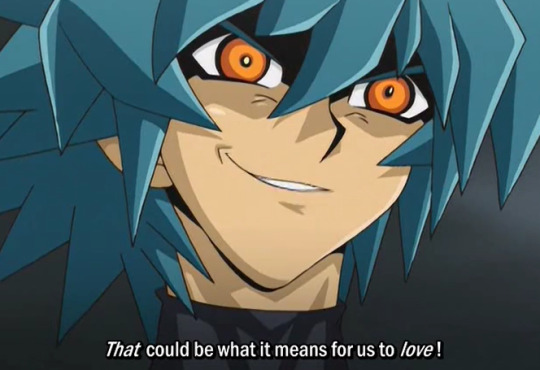
Yubel’s twisted theory of love, is a pretty thinly veiled cry for empathy.
They break out into tears when talking to Amon about the way they’ve hurt and suffered. They clearly state upfront that their goal is for Judai to recognize their love. One of the first things they say to Judai is a plea for Judai to remember them.
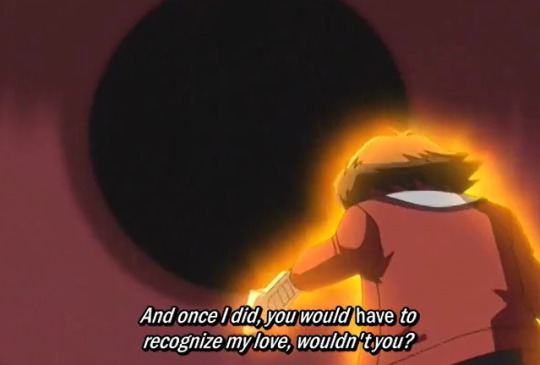
Yubel is presented as a very human character suffering through a lot of pain throughout their entire villai arc, they break down into tears multiple times, they cry out in agony, they're visibly suffering and you see their mental walls begin to break down when Judai denies them any empathy.
Yubel is actually incredibly clear and straightforward about their desire to be saved by Judai. However, Judai doesn’t lift a single finger to help Yubel the entire arc, even though they themselves admit they are directly responsible for Yubel’s suffering but they helped create who they are today.
Judai plunges into a different dimension and gives up everything to save someone, but it’s Johan, not Yubel they try to save. You have Johan, the perfect friend, and perfect victim that Judai gets obsessed over and will not stop at anything to save, and then you have Yubel, the imperfect victim that is actively harming Judai and all of his friends that Judai chooses to ignore. The whole season Judai only focuses on saving the perfect victim Johan, and this is clearly shown to be a flaw. Judai doesn’t just ignore Yubel to save Johan, he also ignores every single one of his friends.
Judai only caring about saving Johan, and deliberately ignoring and abandoning the friends who came with him to help, essentially abandoning them the way he did Yubel leads to another consequence. After he abandons them they get captured, rounded up, and actually die and become human sacrifices.
Losing his friends, causes Judai to snap. Judai becomes the supreme king and decides power is all that matters; he starts killing duel spirits en masse in order to forge the super polymerization card. Which means being left alone, suffering alone, being abandoned by everyone causes Judai to snap the exact same way that Yubel did.
In fact Judai is only saved from his darkest moment, because two of his friends sacrifice their lives, trying to get through to him and appeal to his humanity. At that point Judai’s friends could have just chosen to put him down like a mad dog, to punish him for the amount of people he’s killed, but instead they try to save him because of their friendship.
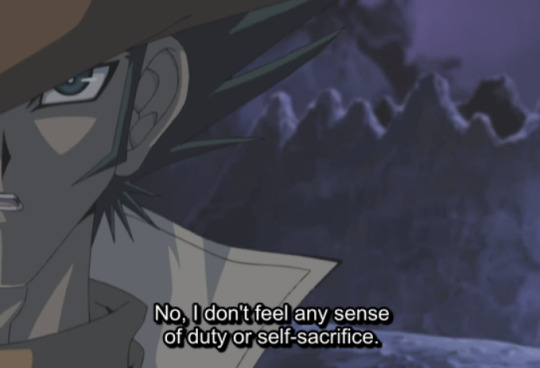
I just want to save my friend. That is all.
By the time Judai is facing Yubel in their final fight, Judai doesn’t have the moral highground against Yubel in any way whatsoever. They’ve both lashed out because of the pain they endured and killed countless people in the process of lashing out. The only real difference between them is that Judai is lucky. He had friends to support him at his lowest point, while Yubel didn’t. Does Judai learn from Jim’s example, and go out of their way to save Yubel the same way they were saved because Yubel is still a friend? Nope, Judai tries to kill Yubel at this point.
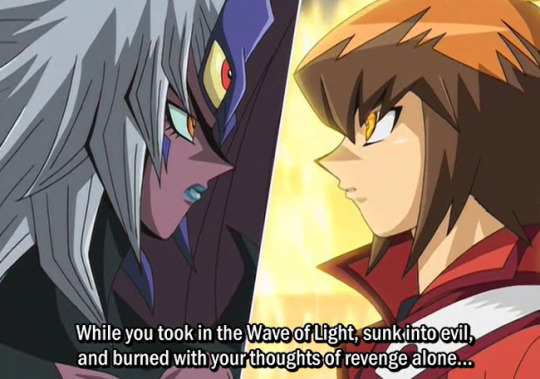
I made a lot of friends... And they all taught me something… real love is wide enough, large enough and deep enough to fill the universe. Your so-called love is only a conceited delusion.
Like, Judai, sweetie baby honey darling. How was Yubel supposed to make friends when they were floating in the empty void of space?
Judai hasn’t learned, they are still ignorant, and still turn a blind eye to Yubel’s suffering. After all if his love is wide enough, large enough,and deep enough to fill the universe then why don’t thy have any room in their heart whatsoever for empathizing with Yubel?
Judai making friends while Yubel was trapped in space doesn’t make Judai a better person than Yubel, it makes Judai lucky. Judai doesn’t even appreciate that luck, because he treats his friends like garbage. It’s not about whether Yubel is worthy of salvation, because Judai is a mass murderer and his friends still went to great lengths to save them anyway. It’s that Judai doesn’t want to empathize with Yubel, because they still want to remain ignorant and irresponsible. Judai wants to continue playing hero, with a very black and white definition of what a hero is. By this point Judai’s killed lots of people, but if he makes Yubel the villain in the situation, he can keep playing hero. He doesn’t have to look at himself and what he’s done, because blaming everything that happened on Yubel and then putting Yubel down like a mad dog allows Judai to absolve his own guilt. Judai practically ignores Yubel’s cries for help, even when Yubel spells it out for them.

I couldn't have lived with the heartache unless I felt that I was being loved...
At this point Yubel themselves acknowledges that their love was just a delusion. That it was a coping mechanism, because they couldn’t live with all the pain otherwise. WIthout it they would have just died, which makes Judai unmoved. The implication here is that Judai thinks yes, Yubel should have just died in that crater. It would have been easier for Yubel to die a perfect victim, then for Yubel to crawl out of that crater and go on to hurt other people. While that may be true the same can be said for Judai - it would have been better if Judai died rather than become the Supreme King. His friends could have put him down like a mad dog, you could have even called that justice - but they didn’t. Judai making no attempt to save Yubel isn’t because he thinks it’s morally wrong to save someone who’s killed as many people as Yubel has, or because he thinks he can’t forgive Yubel, it’s because Judai is taking the easy way out. Johan is a nice, easy victim to save, because he’s Judai’s perfect boyfriend, while Yubel is a complex victim that requires Judai to understand their suffering. Even the act of saving Johan isn’t about Johan himself, it’s about the fact that Judai feels guilt over Johan’s disappearance. What Judai wants isn’t really to save a friend, but to stop feeling guilty over that friend. Judai isn’t just disgusted by Yubel’s actions towards his friend, he also wants to avoid the guilt he feels over causing all of Yubel’s suffering, because it requires acknowledging the complex reality that he is both victim and perpretrator in this case, just as Yubel is both victim and perpetrator.
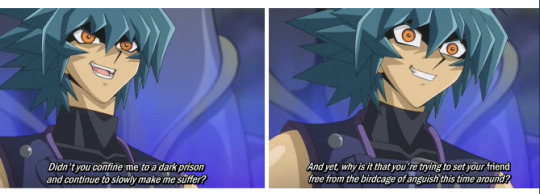
So how can an arc where Judai doesn’t try to save Yubel until the last possible minute, be better than an arc where Deku makes it his goal for the final act of the manga to save the crying boy in Shigaraki?
It’s because the story does not let Judai get away with his continual refusal to empathize with Yubel. Yubel’s entire character revolves around empathy, in the form of sharing pain. As a duel monster, Yubel’s effect is that they are a 0/0 attack monster who is immune to all damage, but when you attack them they deal all the damage back to you. Which means that Yubel will respond to all the pain they feel, by causing you just as much pain in return. Yubel is not a character who can be defeated in a fight, or a duel. In fact they’re the only Yu-Gi-Oh villain who never loses a duel once. The most Judai can do is duel them to a draw, and they draw three times. Yubel wins against everyone else who challenges them. In a way Yubel is like Shigaraki, the ultimate, unkillable enemy that can’t be done away with violence. Judai’s refusal to empathize with Yubel or attempt communication also makes them worse, every time Yubel is hurt they escalate. THe more Judai hurts them, the more they will hurt in return, it’s a cycle that will never be broken simply by killing Yubel, because Yubel is unkillable.
Not only that but the story has gone to great lengths to show that saving Yubel is the correct course of action. If Judai doesn’t save Yubel, he’s basically spitting on the selflessness Jim showed in saving him. In fact if he doesn’t save Yubel, Judai is contradicting his own words on what makes a good friend. Sho once asks Judai after witnessing his brother change, what he should do if a person you lov ehas changed into an entirely different person. What if they're a person you don't even recognize any more? A person you don’t even necessarily like anymore?
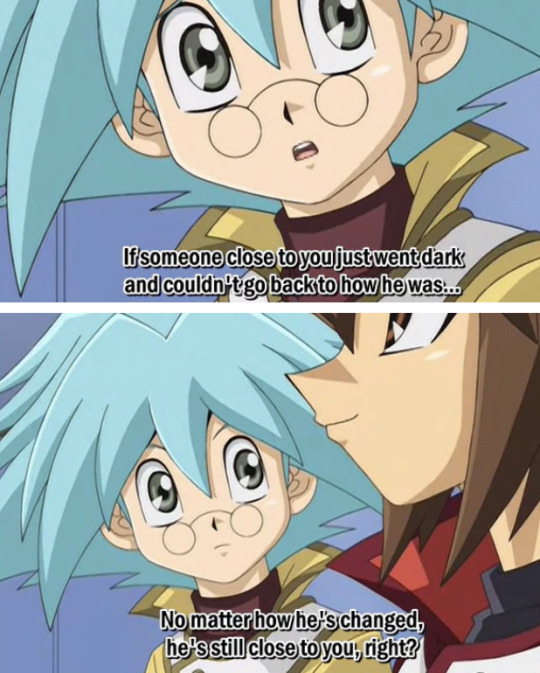
That's why if it were me. I'd probably just be looking after him until the very end, even if I didn't like him. I'd do it cause I think it'd prove that I care about him.
Judai doesn't even say that Sho is obligated to save his brother or morally redeem him, just that he has to keep looking at him instead of turning away or ignoring him.
Judai is being a bad friend, by his own definition. By choosing to deliberately look away from Yubel, Judai’s not living up to his advice for Sho for how you treat people you care about.
Which is why the resolution for Judai and Yubel’s arc is so important, because it’s done by Judai finally acknowledging Yubel’s pain, and promising to watch over them from now on, words that are followed by the action of physically fusing their souls together so they’ll never be alone again. Judai doesn’t just say pretty words about how they won’t ignore the crying child inside of Yubel, but instead he makes a sacrifice to save Yubel at risk to themselves to show their words are backed up by actions. Judai says Yubel will never be alone again, and then he commits.
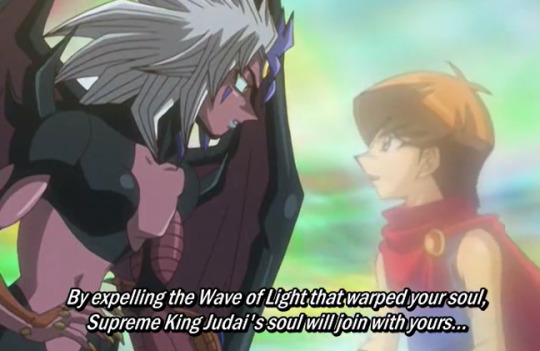
"And even if that means I won't exist anymore... I don't care."
Judai has resolved his character arc by this action, because Judai is finally taking on responsibility and that responsibility is watching over Yubel, so the two of them can atone together. Judai even says himself this isn’t an act of sacrifice on his part, but rather him finally accepting adult responsibilities.
Judai: I wouldn't sacrifice myself for you guys. I'm just going on a journey to grow from a kid into a man.
Judai needed to save Yubel to complete his character arc and grow as a person. If Judai hadn’t saved Yubel, he would have still remained an ignorant child. By learning not to turn a blind eye to Yubel’s pain, and also smacking sacrifices and physically doing something to atone for the way they ignored Yubel up until this point they’ve not only saved Yubel they’ve also done something to address their wrongs. This also continues into the fourth season where Judai’s personal growth results in him learning what kind of hero he wants to be as in Season 4 in order to atone for the spirits that Judai slaughtered, he decides to leave his friends behind and walk the earth with Yubel helping spirits and humans get along with each other. In fact Judai’s final speech as a character isn’t even about how strong he is as a hero, but how weak he is as a person.
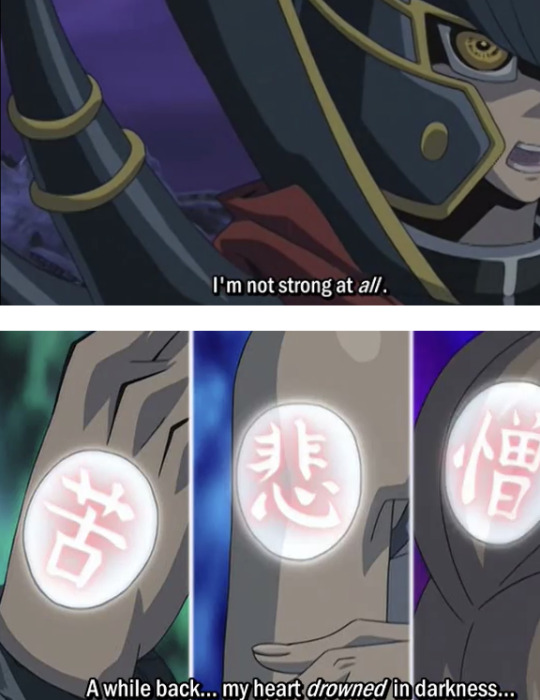
And I put my friends through some rough times. Form that, I figured a few things out... all I can do is believe in them.
The lesson Judai learned is because he’s weak, he needs to empathize and believe in other people the same way that his friends once believed in him when he was at his lowest point. Judai’s not the strongest hero, he’s the weakest one, but that gives him the ability to empathize with people who were lost just like he was, and guide them back from the darkness.
The story of how Deku became the worst hero.
I’m going to say this right now it might turn out next week that Shigaraki is just fine, and he’ll use the overhaul quirk to reconstruct his body. However, even if that happens Deku has completely failed at his goal of saving Shigaraki for the reasons I’ll illustrate below. In theory, Deku’s arc of saving Shigaraki, and therefore winning by saving should be much easier for the story to accomplish and also much less frustrating to watch. After all, Shigaraki has been around since the beginning of the manga, he’s literally the first villain that Deku faces. He’s also the first villain that Deku talks to, where he brings up the idea that there were some people All Might failed to save. There’s also many intentional parallels between the two characters, the entire manga is about their parallel journeys of becoming the next generation hero and the next generation villain. Shigaraki even directly quotes the line at one point that all he wanted was for someone in his house to tell him he could still be a hero, the same line Deku said in the first chapter was that he wanted his mom to tell him to be a hero instead of apoalogizing to him for being quirkless.
Not only is the setup for Shigaraki and Deku made obvious (Deku can redeem Shigaraki by telling him that he can still be a hero too), but Deku himself states out loud that he wants to save the crying child inside of Shigaraki.
Judai runs away from Yubel the whole time, whereas Deku is running towards Shigaraki and actively makes it his goal to understand Shigaraki and continue to see him as a human being rather than a villain. The story also makes it clear that saving Shigaraki is necessary to saving hero society as a whole. After all Yubel is just Judai’s victim. Whereas Shigaraki is the victim of all of society. He’s the crying child who was ignored. The cycle won’t be broken if heroes continue choosing to ignore people like Shigaraki, because more victims will grow up to replace him.
Shigaraki: Everything I've witnessed, this whole system you've built has always rejected me. Now I'm ready to reject it. That's why I destroy. That's why I took this power formyself? Simple enough, yeah? I don't care if you don't understand. That's what makes us heroes and villains.
Shigaraki rejects the world because the world continues to reject him. THe solution to this problem is not rejecting Shigaraki, because Shigaraki won’t go away, the system will just continue to reject people like Shigaraki. As long as heroes and villains don’t understand each other, they’ll keep being forced to fight and the conflict won’t end, because hero society is what engineers it’s own villains.
clear as day by the story itself. If the objective of saving Shigaraki is clear, then how exactly did the story fail in this objective? What went wrong? In this case it’s a failure of framing, and breaking the rules of “show don’t tell.” Stories are all about actions and consequences. When a character makes a certain action in a story, the way other characters around them, the world, and whatever consequences that action frames that action in a certain light. It provides context for how we are supposed to interpret that character in that moment.
For example, when a character does something wrong and another character directly confronts them over what they did wrong, that frames them as in the wrong. The story is criticizing the character for what they did wrong. Context is everything in a story. Stories are just ideas, so they require framing and context to communicate those ideas for the audience. Certain character attributes can be strengths or flaws depending on the context. My go to example is that if you put Othello in Hamlet, the conflict would be resolved in five seconds because Othello’s straightforward personality and determination would have him kill Hamlet’s uncle without questioning things. Whereas, Hamlet constantly questioning and second guessing himself would lead to the worst ending possible. However, if you put Hamlet in Othello, then Hamlet wouldn’t fall prey to Iago’s manipulations, because Othello doubts and questions everything so he wouldn’t believe Iago the way Othello did.
Hamlet’s contemplative and introverted nature can be a strength in one situation, and a flaw in another. Othello’s tendency to act without thinking things through can be a strength in one situation, and a flaw in another. Context matters, because context tells you how you’re supposed to interpret a certain characters actions, and therefore tells you more about that character. This is why people repeat “Show don’t tell” as the golden rule of storytelling, it’s one thing to say something about a character, it’s another to us the characters actions in the story itself to show them something about the character.
What’s even worse then breaking the rules of show don’t tell however, is telling the audience one thing, and then going onto show in the narrative something completely different. In that case the narrative becomes muddled and confusing to read. If I the narrator say “Hamlet is someone who overthinks everything” and then in the story Hamlet walks up to his uncle and kills him with no hesitation, then the narrator is straight up unreliable. It becomes impossible to tell as an author what message I’m trying to get across about these characters, because I’m telling you one thing and showing another.
This is why the writing fails in the second half of My Hero Academia because we are constantly told one thing, but then the story shows something entirely different and sometimes even contradictory to the thing we are being told.
Judai is a much worse hero than Deku, he always runs away from Yubel, and we’re never directly told that he’s supposed to save Yubel either. However, the narrative is incredibly consistent. Judai’s behavior of running away is consistent with his character. All the other character call Judai selfish for abandoning his friends (and they’re not even talking about Yubel). Judai is never painted in any positive light for his actions, therefore we as the audience understand Judai’s behavior is wrong and he needs to fix it. The narrative makes it clear that Judai needs to grow up, and Judai is never rewarded for his refusal to grow up, he’s ruthlessly chewed out, not by his enemies but also by his own friends. However, the narrative isn’t merciless on him either. Season 3 of GX is dark, but it’s not grimdark. Even when Judai loses his way, he’s still shown love and compassion by those same friends who go to great lengths for his sake. The narrative criticize Judai but it never insists that he’s beyond redemption and needs to be put down like a mad dog.
The message is very clear, that not only does Judai need to grow up, but he also deserves the chance to grow and change, which is why he should give Yubel a similar chance. In comparison the story sets out this clear narrative arc for Deku of understanding Shigaraki, but it never challenges him for failing to understand Shigaraki. If you listen to what the narrative says, how other characters describe Deku, and what Deku himself says and only read it on a surface level then yes, Deku’s goal is to save Shigaraki. If you analyze actions however, he is in effect just like Judai he never takes any meaningful action or steps towards Shigaraki, nor does he think of what saving Shigaraki might look like or entail.
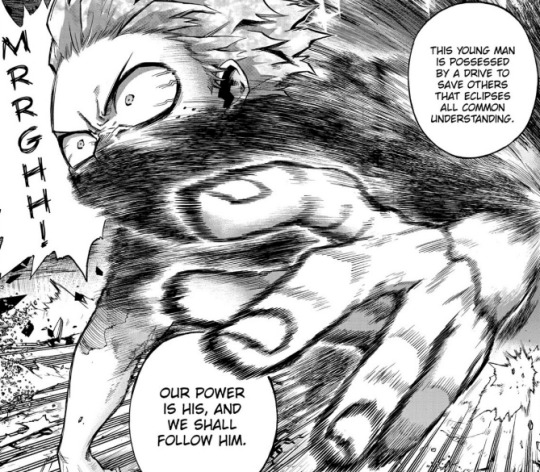
The story describes Deku as someone who is possessed by a drive to save others that eclipses all common understanding, but does the story give us any examples of that behavior?
Judai is characterized as a selfish, irresponsible child, and the story gives us countless examples of his immaturity and how it hurts others. Does the story of MHA do the same for Deku's purported virtues? Let’s run through Deku’s actions, step by step, the actions themselves and how they are framed in order to find any evidence that Deku possesses this drive to save others. Does Deku reflect at all on the question of:
Can Shigaraki be Saved?
Deku leaves on a journey to try to understand villains. When he makes a perfunctory attempt to understand and empathize with Muscle, and Muscle replies that some people are just evil does Deku keep trying to reach his heart? Nope, he just punches him.
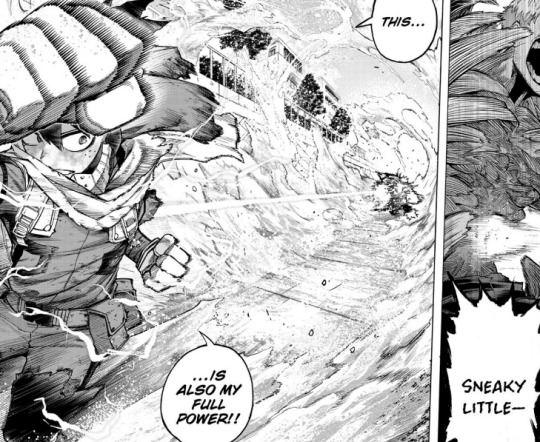
Well, if he’s failed in his goal of understanding a villain then does the story call him out on his failure? Does Deku face any sort of narrative consequence for that failure? Is he framed negatively for failing to understand Muscle, the same way that Judai is framed for abandoning Yubel? Nope. Deku doesn’t express any frustration at all over is inability to reason with Muscle. There’s also no negative consequence for Deku just choosing to punch muscle, it turns out that there was no reasoning with Muscle and some people are just bad eggs so Deku was right. It’s okay for characters to fail, but if a character fails and it’s not framed by the story as a failure then the writing itself as failed. Why even bother to include this scene in the first place if it doesn’t advance Deku’s character in any way? This scene in spite of showing Deku failing to understand someone actively paints Deku in a positive light, because of how much stronger he is ow that he can OHKO a guy that gave him trouble all the way back in the camp arc.
This scene doesn’t tell anything about Deku as a character, it just makes him look cool. In fact that’s precisely the problem, Deku isn’t adequately challenged as a character, because he’s never allowed to fail. Even when he does obviously fail at the things the narrative set out for him to do, he’s never challenged on those failures, because the priority isn’t to make Deku grow, it’s to make Deku look good. As I said before, Judai is the hero because he’s the weakest. Deku is the hero because he’s the strongest. Well, next a big flaw on Deku’s part is that he worshippd the same heroes that were making the world corrupt. Heroes like Endeavor who created people like Dabi. So, does Deku take action to either criticize the older generation of heroes, or separate himself from them in order to try to be better than them? Nope, he teams up with them. Not only that, Deku can’t do something as simple as tell Gran Torino out loud about his plans to save Shigaraki. If Deku feels that Shigaraki is worthy of salvation then he should at least try to make an argument here about his ideal of saving others.
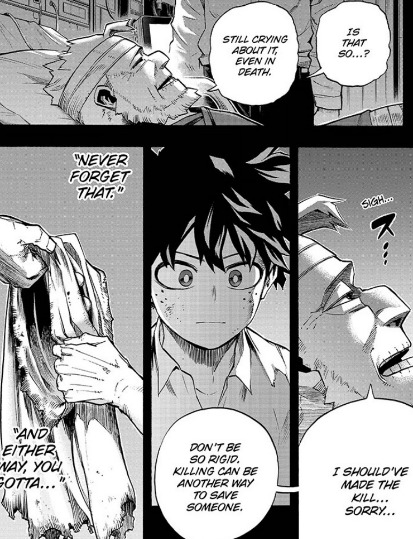
Now here’s the thing, if Deku hadn’t directly looked at the camera and told us he wanted to save Shgiaraki, would we be able to deduce his intentions from his actions? If you took away all of Deku’s internal monologue, and just showed him punching Muscular and saying nothing when Gran Torino says he may have no choice but to kill Shigaraki would anything about Deku’s actions indicate that he wants to save Shigaraki? Let me use avatar the last airbender as a positive example for a moment. People say that Aang’s desire to spare Ozai’s life comes out of left field, but like if you analyze Aang as a character down to their bending, and the way they react in situations they always prefer de-escalation, or taking a third option as opposed to confronting things head on. It’s literally why Toph says Aang has trouble learning earth bending, because as an airbender, he always tries to look for some other way to solve the problem, instead of a direct confrontation with force. As early as season one, Aang tells Zuko someone who has tried to kill him several times that he was friends with someone from the fire nation one hundred years ago and in a different situation they could be friends. Aang’s desire to save the Firelord may not have been told to us until the last possible minute, but Aang’s aversion to violence has always been a part of his character from the beginning. However, Deku never shows any similar aversion to violence. There’s basically no example where he ever tries to de-escalate a situation, or he avoids a conflict by seeking a third option.
Anyway, let’s move onto the next example. In the confrontation where Lady Nagant fights Deku, when Deku learns the fact that the heroes were employing government hitmen to attack people for uhh… exercising free speech does Deku give any reaction to this information? When Lady Nagant says that Deku is only going to bring back the status quo, does he show her any meaningful evidence that he won’t do that.
Deku’s response is because the world is so grey, he needs to extend a helping hand to others. Which you know what thay could be a response. Deku saying that his response to the corruption of the hero world is that he now understands that society led some people down the wrong path, so his way of addressing the wrongs of that society is lending a helping hand to as many people as possible even people he used to think was irredeemable.
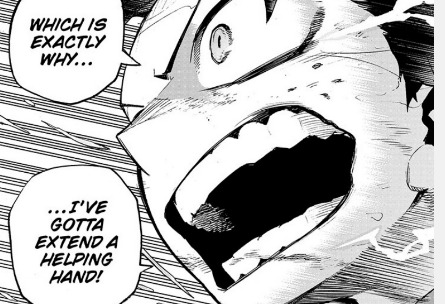
I will give Deku the benefit of the doubt, I think this is an acceptable answer. I can’t save everyone, but that’s not going to stop me from trying to save as many people as possible and maybe I can save people who were this society’s victims on the way too. However, does Deku demonstrate his resolve to extend a helping hand in any meaningful way.
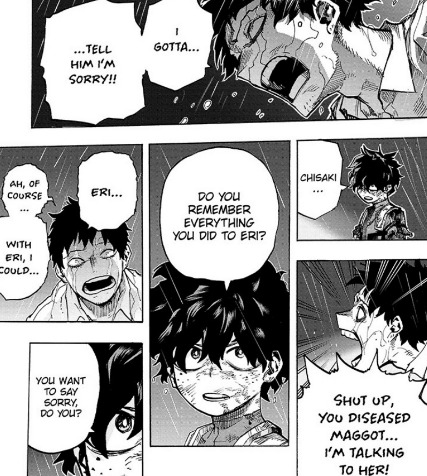
Deku is met with an armless, insane Overhaul who’s begging for someone to help heal his father figure in the Yakuza from his coma. This isn’t like Muscular who insists that there’s no helping him, Deku is met face by face with someone asking him for help. Deku’s gotta extend a helping arm whenever he can, because he knows some people were abandoned and led astray by this society… Unless that person is someone he doesn’t like personally. At which point he only helps them on a conditional basis. We are told Deku will save anyone and everyone, but Deku is met face to face with an armless man who is begging for help and Deku’s does nothing to help him. Deku’s not criticized for refusing to help overhaul either, it’s never brought up again. When Deku begins to experience a mental breakdown because of all the people he’s trying to help in the Dark Deku arc, we are told this is the result of Deku trying to save everyone, but we do not see Deku attempting to save a single villain after Muscular and Nagant.
He exhausts himself beating up villains that AFO sends after him, and only helping innocent civilians. Which would be fine if this arc were about how Deku is running away from his real responsibilities the same way that Judai was running, but that’s not what we’re being told. We are told that this is all part of an arc of Deku learning to understand villains and be a hero.
Deku is asked “Can you save Shigaraki?” by the story, but Deku never at any point has to deliberate on that question. Judai doesn’t deliberate on that question either, but him choosing not to think about things and stay ignorant is the point.
It’s actually fine to make Deku stagnate as a character. It’s fine to have him take the easy way out by just punching villains and giving up on them after one conversation. It’s fine for him to be empathetic to other people’s suffering, or even self-righteous. It’s fine for him to be ignorant.
He could be all of those things if it was a part of a narrative teaching him to unlearn his behavior. In fact the narrative might have been better if Deku started out by saying he didn’t want to save Shigaraki, that there was no choice but to kill him, because then at least his actions would be consistent with his words. Then his lack of empathy and his tendency to resort to violently beating up villains instead of avoiding violence would be character flaws he could work on. Deku however, is presented to us as this empathic hero who is always willing to give others a second chance though he never actually sticks his neck out in order to do so. Continuing on with our slow crawl through MHA, one of Deku’s friends is revealed as the traitor. Deku has a heartwarming scene fo saying that Aoyama can still be a hero, but look at his actions. He lets the adults in the room physically tie Aoyama in a straightjacket and imprison him, for the crime of… doing bad things while he was in a hostage situation. Apparently, if a bank teller helps the bank robber by giving them money when the robber has a gun to his head, the swat team should just snipe the bank teller. Not only does he not defend Aoyama against the adults, or stand up for him, or tell the adults they’re wrong to treat Aoyama a clear cut victim who had a gun to his head and was bing held hostage like he’s a villain - he also lets the adults use Aoyama an innocent victim as bait in order to lure out AFO. Deku tells Aoyama he can still be a hero, but he doesn’t defend Aoyama as a victim of being taken hostage, nor does he stop the adults from further taking advantage of him and throwing him right into danger. Some people are just led the wrong way that’s why they need to be extended a helping hand, but fuck Aoyama I guess. He needs to earn the right to be sympathized with by physically putting his life in danger.
Deku can’t even go out of his way to save a friend who he’s known for the better part of a year, when that friend is a complex victim forced to do bad things.
Then Deku and Uraraka have a conversation where they both, kind of ruminate on the idea that maybe the villains are human beings who are worthy of sympathy.
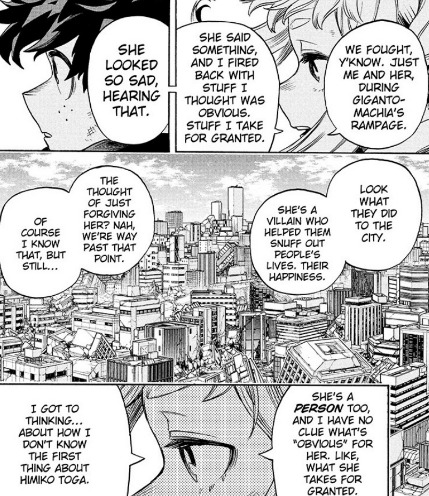
In fact Uraraka is actively trying to dehumanize Toga by looking at the destroyed city, so she won't have to think of Togaas a person.
The language here is also a major fault of this arc. It focuses far too hard on “forgiveness” over and over again. As I said before, saving Shigaraki isn’t about Shigaraki at all, it’s about Deku, and how he wants to use his power as a hero. Deku has even stated himself that he doesn’t believe that OFA is a power that should be used for killing people. So why does whether Toga or Shigaraki are forgivable or not even matter? It’s the same with Deku refusing Overhaul any sympathy. If he’s so morally opposed to abusers, then why does he work with Endeavor and defend him at every visible opportunity, even in front of his victims? Whether or not Deku can forgive Shigaraki doesn’t matter, because Deku is not the moral arbitrator or right and wrong. In fact Deku doesn’t even have any morals, so how is this a moral debate? Is there any point where Deku gives a clear definition of what he thinks right and wrong is? Does he quot Immanuel Kant to the audience?
Batman doesn’t kill people, not because he thinks that every last person on earth can be saved, but because Bruce Wayne an incredibly rich white man thinks that maybe he shouldn’t have the authority to decide who lives and who dies. When Bruce doesn’t kill the joker, it doesn’t mean he thinks the Jokers actions are forgivable, it’s because Bruce thinks it’s not his place to determine whether someone has the right to live.
The whole conflict that MHA presents us is that heroes pick and choose who to save, and only save the ones they deem as innocent. So, how does Deku saying repeatedly they can’t forgive Shigaraki contribute to that theme in any way? In fact by focusing on forgiveness, rather than whether or not he personally has the right to pick and choose who lives and who dies Deku is ignoring the elephant in the room. The question isn’t about whether Shigaraki’s redeemable or if his deeds should ever be forgiven. The question is whether Deku has the right to decide who gets saved and who doesn’t.
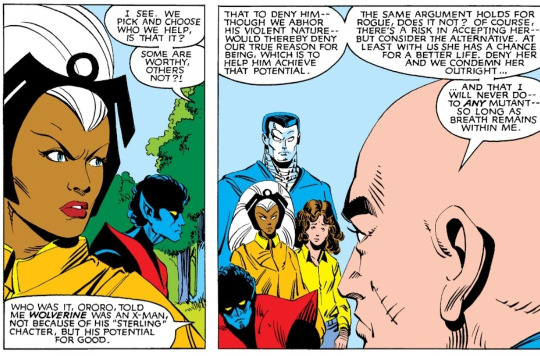
We are told that Deku as a character is someone who wants to save everyone no matter what, so Deku shouldn’t be focusing on whether or not Shigaraki is worthy of forgiveness, he should be making an idealistic argument like Xavier does in this panel. Why doesn’t Deku talk out loud with Uraraka on how he believes his power is for saving others, and not killing? If he’s meant to represent some idealistic hero, then why doesn’t he even talk about his ideals? Why don’t I as the reader know what those ideals are?
I think Xavier’s ideals of forcing the X-men to provide a good example to the mutant community, in order to try to earn the respect of other human beings is wrong, but at least he has ideals. He tries to inspire the other people around him to live up to those ideals. The story can criticize him for his ideals and point out how they’re wrong, while it can also uplift parts of his idelogy like where he believes there are no evil mutants. Deku has a chance to do the same to Uraraka, to tell her clearly, “I don’t think we as heroes have the right to pick and choose who we help…?” but he waffles. Not only does he waffle, but this moment is meant to be read as an indication that both Deku and Uraraka are sympathetic individuals who want to save their villains. They are supposed to look good and idealistic here and they don’t. For Deku it just seems like a repeat of his behavior with Overhaul. The only villains that are worthy of sympathy, are the ones that he personally decides are forgivable.
The story isn’t about whether or not it’s moral to save someone who’s killed as many as Shigaraki has. The story never seriously discusses any sort of complex morality or moral philosophy. Once again to bring up avatar, yes you can argue Aang sparing the life of a war crimminal is bad, but Aang mentions on multiple occasions that he wants to retain the cultural values of the airbending people. Aang has a morality, a consistent morality, it might not be a morality you personally agree with but at least he has one. Deku hates abusers, unless he’s next to Endeavor then he thinks abusers should be given the chance to atone. Deku doesn’t believe that One for All is a power for killing, but he never stands up to any of the adults who are blatantly trying to kill Shigaraki, he doesn’t even express out loud to Uraraka that he doesn’t think heroes have the right to decide who lives and who dies. In fact he’s given the perfect opportunity to, when Hawks kills a villain and it’s broadcast live on the news in font of everyone, but Deku never has anything to say about that. The reason Deku and Uraraka both put such an emphasis on “forgiving” their villains has nothing to do with the story itself. It’s because the author Horikoshi, is afraid that some people will misinterpret his story as saying that he actually thinks that saving a villain like Shigaraki means that he condones mass murder, so he has to have the characters talk about not forgiving Shigaraki.
Judai doesn’t have any consistent morals either, but once again that’s the point and something the story relentlessly calls him out on.
Cobra: Fortune would never smile on a fool like you who fights while prattling on about enjoying duels. Cobra: You are certainly a talented duelist. But you have one fatal flaw. Judai: A fatal flaw? Cobra: Yes, your duels are superficial. Someone who fights with nothing on his shoulders, cannot recover once he loses his enjoyment. What a duelist carries on his shoulders will become the power that supports him when he's up against the wall! Cobra: But you have nothing like that! Those who go through life without anything like that cannot possibly seize victory. Cobra: But I know that nothing I say will resonate with you... because you have nothing to lose but the match. Judai: I... Cobra: Afraid aren't you? Right now, you have nothing to support you.
Judai’s regularly called out for his superficiality. Judai is only a hero because he’s strong and wins fight, he doesn’t feel any responsibility towards other people, and in fact he loathes having to feel responsible for others. Judai isn’t just naive, he deliberately chooses to remain ignorant. Since he’s ignorant of his own faults, he makes awful decisions when it comes time for him to lead, and his friends die because of choices he made. We are told that Deku doesn’t want to remain ignorant, that he wants to understand villains, but Deku’s actual actions are him continuing to ignore society’s ills and the suffering of victims. In fact if you take away Deku’s internal monologue and the narration, Deku’s actions almost exactly mirror Judai’s.
Deku is just as superficial as Judai, and he also doesn't want to spend any time thinking about what kind of hero he wants to be, but the narrative never punishes him for it.
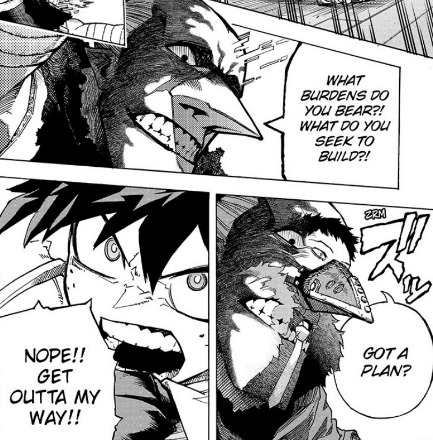
Judai is asked what burdens he has to bear and he has to meaningfull answer that question, Deku is allowed to get away with not having to think about anything. Deku remains superficial. Both Judai and Deku spend the entire arc running away from their villain rather than confronting them in any meaningful way. They both never express out loud any sympathy for their villain, or try to empathize. THey both never step down from the role of hero, and only confront their villain as a hero, because they don’t want to think about themselves as complicit or in the wrong. Shigaraki and Deku’s final confrontation mirrors Judai and Yubel’s but without the same clear framing. THe entire time Yubel is trying to get Judai to empathize with them, and Judai only responds with physical violence, because they don’t want to stop being the hero and because they can’t see Yubel as anything other than the villain. As soon as Deku arrives on the battlefield (by the way everyone else and their mom pointed this out, but Deku who doesn’t think OFA is a power for killing, is completely okay with a plan called the “Sky coffin plan” where every other hero was clearly trying to murder Shigaraki).
When Deku arrives he asks if Shigaraki is still in there, but he doesn’t do anything to try to reach Shigaraki, he jumps right to punching him. In fact he never tries anything besides punching him as hard as possible. How is punching Shigaraki with the force of a thousand suns saving him exactly? How is that different from how he tried to defeat Shigaraki the last war arc, before he saw the image of the crying child that made him want to try a different approach in saving Shigaraki? In Judai’s final fight with Yubel, it’s made explicitly clear that Judai is not trying to save Yubel, and that’s a fault on his part. In fact Judai gives the traditional “I have friends, and you don’t” speech to Yubel but it’s a subversion of how that speech is usually used. Usually that speech is used to show that the protagonist won because of they valued friendship,while the villain treated their friends poorly and only cared about power. However, it’s ironic in this case because Judai got all of his friends killed. Judai treats his friends like garbage. This speech isn’t used to show that Judai is winning because he values his friends more than Yubel does, it shows that Judai is a hypocrite, playing the hero in this situation where they are just as bad as Yubel. Judai’s not morally superior, he’s just lucky that he has good friends. Friends that were willing to save him. The only connection Yubel has to anyone else, Yubel’s only friend is Judai and Judai is a shit friend.
In fact, Mirio tries to give a version of the “You don’t have any friends” speech to Shigarkai, only for Shigaraki to get mad and tell Mirio that he does have friends and people he wants to protect.
This fact is also something that is blatantly ignored by Deku, even though Mirio tells him about it… even though we are told that Deku is trying his best to see the humanity in Shigaraki.
Judai blatantly admits they’re trying to kill Yubel. Which makes them a worse person, but a better character than Deku, because their actions are clearly framed by the narrative and consistent.
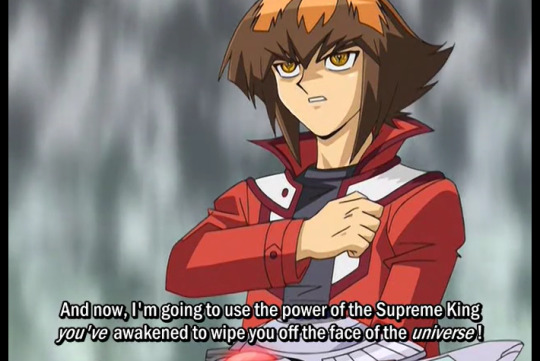
On the other hand we are told that Deku doesn’t want to kill Shigaraki, and yet everything Deku does makes it look like he’s just trying to kill Shigaraki and put him out of its misery. If we didn’t have Deku stating out loud that he wants to save Shigaraki and wants to see him as a human, there’d be nothing in his actions to indicate that he’s trying to avoid killing Shigaraki. Deku says he can’t pretend he didn’t see Shigaraki crying, but like, does he ever hesitate to punch Shigaraki, does he ever think that causing Shigaraki more harm is wrong when he’s already suffered so much? Deku says that Shigaraki is a person but does he treat him like a person? Does he try to talk to him like a person? To use avatar again, Aang does talk to Zuko pretty early on. Deku doesn’t even give the classic “We could have been friends under different circumstances” speech. When Shigaraki resists Deku’s attempts to see him as a person or emapthize with him, Deku’s response is to just resort to punching harder.
Which is in effect the same thing Judai does to Yubel, just kill them as a villain so they don’t hurt anybody else, but framed in an entirely different light. Judai is shown to be ruthless, and cold in his attempt to only settle the conflict with Yubel by violently putting them down. On the other hand we’re being told that Deku is compassionate and empathic while he punches Shigaraki with the force of a thousand suns.
There’s another eerie similarity between both of these final confrontations. At the climax of the confrontation, both Judai and Deku have a psychic vision where they see events from Yubel and Shigaraki’s childhood. This vision is supposed to help both characters understand the good in the villain they’re facing.
Let’s see the contents of this vision and how the visions change each character. Judai is shown a vision of his past life where Yubel sacrifices their entire body, and even their humanity to go through painful surgery to turn into an ugly dragon, all for the sake of protecting Judai in a previous life.
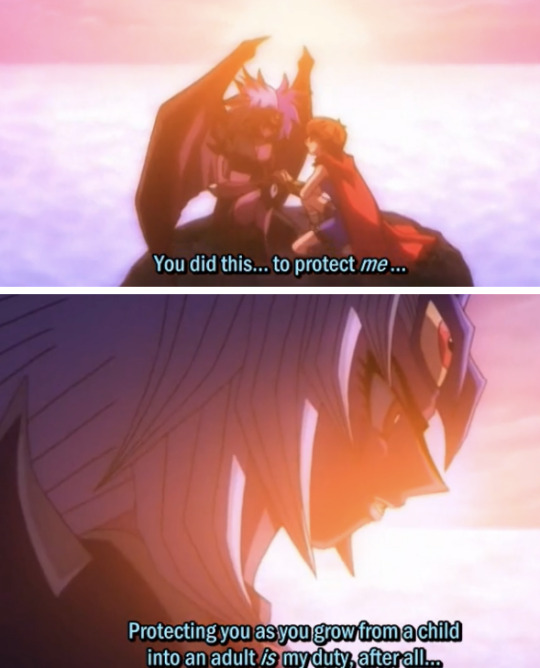
Judai is then forced to witness the good side of Yubel they’ve been ignoring all along to paint them as a villain. Yubel is simultaneously extremely selfish and willing to hurt people Judai cares about, but they’re also extremely selfless and will do anything to protect Judai and have made great sacrifices in the past for Judai’s sake. Deku gives lip service to not ignoring the humanity in Shigaraki, but Judai is literally forced to acknowledge the humanity in Yubel. Not only that, but Judai changes his behavior immediately after learning this new information. After seing the sacrifice that Yubel made for him in the past, Judai responds with a sacrifice of his own. A sacrifice that perfectly mirrors the sacrifice that Yubel once made for him. Yubel gave up their humanity for Judai, so Judai fuses his spirit to Yubel’s, becoming a human / spirit hybrid so Yubel no longer has to be alone.
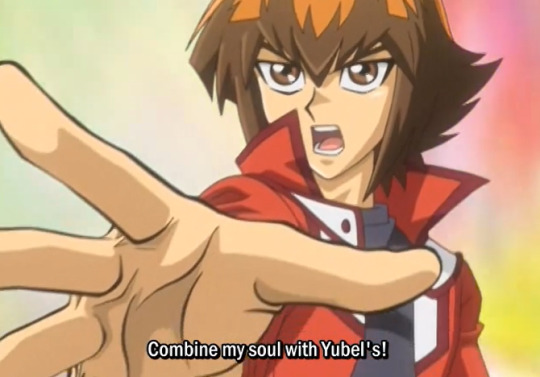
Judai also doesn’t just fuse their soul with Yubel’s in order to stop Yubel from destroying everything, it’s because both of them at this point need to atone together, and Judai is fulfilling his responsibility of watching over his friend until the end to prove that you care about them - as he said to Sho. Judai’s also fulfilling Johan’s dream of helping repair the bonds between spirits and humans, by reconciling with Yubel and repairing their bond. It’s also Judai atoning for his previous behavior of abandoning Yubel, by choosing to stay alongside them as they both atone together. Deku does sacrifice OFA during the fight against Shigaraki, but their sacrifice isn’t to help Shigaraki, but rather doing psychic damage to Shigaraki by using OFA is the only way to defeat them. He transfers OFA in order to break Shigaraki’s brain so he’ll stop reissting and Deku can beat him down. Judai fuses their soul together with Yubel out of empathy and a responsibility they feel to help their friend fater abandoning them, Deku transfers One for All to Shigaraki in order to hurt him and make him easier to punch. It's funny that Deku doesn't travel to Shigaraki's mind to learn more about him, but instead with the specific intent of harming him.
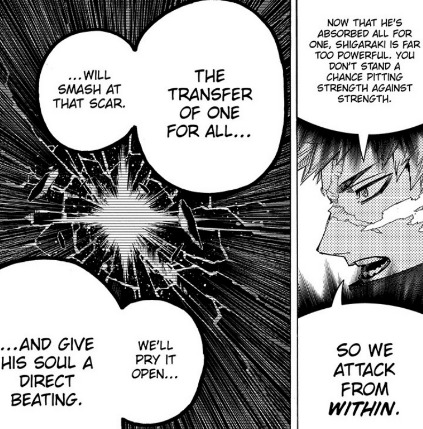
Once he's inside Shigaraki's mind, he doesn't take time to reflect on how Shigaraki used to stand up for bullied kids, or how he wants to be a hero to villains because no one else will stick up for the outcasts in society. No, he only care about Shigaraki when he takes the form of a child crying for help.
In the aftermath of the psychic vision Deku’s behavior doesn’t change towards Shigaraki in any way either. You could say he sacrificed his own arms in order to try to comfort Shigaraki within the depths of his own mind - but that’s not a real sacrifice either because his arms immediately come back. When Judai learns about the sacrifice that Yubel made in a previous life towards him, he stops seeing Yubel as an enemy and finds a way to resolve things peacefully between them. When Deku lanterns that Shigaraki’s a victim of All for One, and that his entire life was a lie, when he sees Shigaraki’s suffering first hand does his beavior twoards Shigaraki change in any way?
When he sees Afo has taken over Shigaraki’s body again, does he try to shout for Shigaraki, to tell Shigaraki to fight from the inside, to reassure Shigaraki that he’s still in there that there’s still good in him? Nope. He just punches Shigaraki some more.
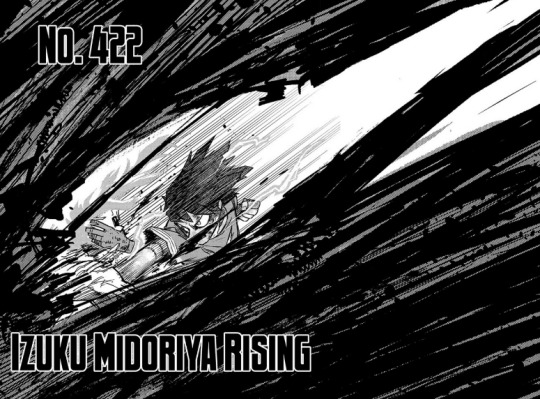
What Deku needed to tell Shigaraki is so obviously set up by the narrative too. Shigaraki wanted just one person in that house to tell him he could be a hero. Deku wanted his mother to tell him he could be a hero if he was quirkless. Deku sees that Shigaraki started out as a boy who wanted to be a hero, and who was manipulated into being a villain but does he try to appeal to the boy inside of Shigaraki by telling him he can still be a hero? Does he now see the good in Shigaraki? Nope, he just tries to kill him by punching him really hard.
I purposefully chose the images for the banner of this post, because it shows how differently MHA and GX treated its villains in the end. Yubel is embraced by Judai in the end, Shigaraki evaporates into dust.
"Judai, now that our souls have become one we will never be separated again. I have now been filled with your love and power. Let us fight together, against the wave of light leading this universe to destruction!"
Shigaraki could so easily have been given the love and empathy that Yubel was shown, but instead their life ends with no show of empathy from Deku, and with them dying believing that their long life of tragedy meant nothing in the end. Shigaraki realizes he's a crying kid, but he's never comforted.
Shigaraki: I only stole my body back from Master, and I didn't destroy anything. "In the end, I was just as you said... A crying kid, huh?"
Yubel is embraced and comforted, Shigaraki disintegrates into nothing.
One of these stories is apparently an optimistic story about heroes saving people, but it ends with the lifelong victim being killed in the most nihilistic manner possible, never receiving comfort, and never achieving anything with his long life.
The other story is a silly anime about card games, shows that when people are alone and suffering they can lash out and do terrible things. That all people are weak especially when they're alone, but the solution isn't to abandon them, or condemn them for their faults, but to believe in them and help uplift them the same way that Judai decides to uplift Yubel so they can atone together.
Which is why Deku gets an F in being a hero. Go directly to summer school. Do not pass Go. Do not collect $100.
#mha meta#ygo meta#mha 423#bnha 423#mha 423 spoilers#bnha 423 spoilers#izuku midoriya#deku#shigaraki tomura#tenko shimura#judai yuki#yubel#soulshipping#yu gi oh gx#yu gi oh
714 notes
·
View notes
Text
More Vox Machina meta time bc I feel like people do NOT talk enough about how complex Pike and Scanlan’s relationship is. First off the show is very good at steering away from the typical he’s-annoying-so-she-eventually-gives-in misogynistic approach a lot of those types of dynamics have. Like it initially comes off as just cute and flirtatious until their dynamic ironically becomes the least romantically driven of the main ships in a way that’s far more layered than I expected. It always feels like Pike’s complicated feelings come with observing Scanlan from a distance, she’ll flirt back and play along but ultimately wants to see the person he COULD be, the more sincere and earnest side to him (which can also be tied to Zerxus’ comment about her taking pride in “redeeming” her friends).
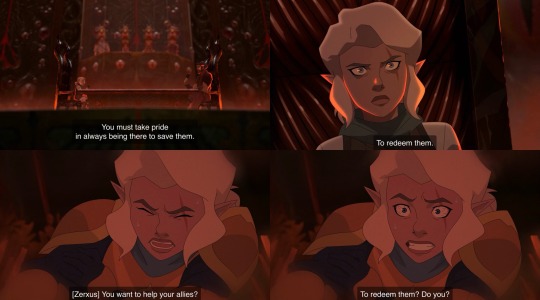
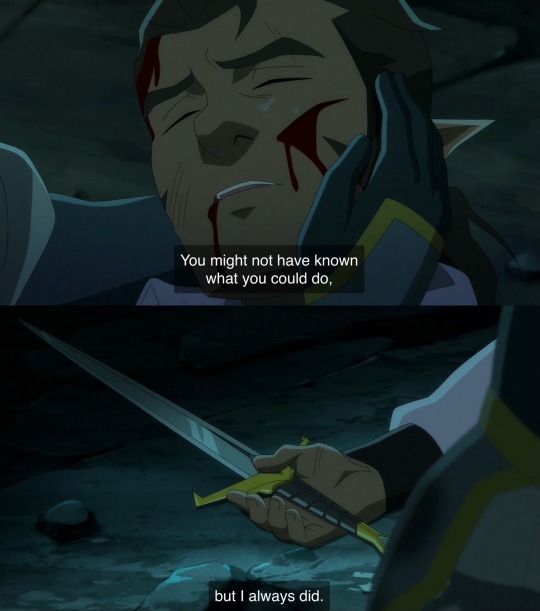
But then from Scanlan’s perspective, becoming the person he “could” be means distancing himself from Pike completely, because he’s in love with her and in his mind he sees that as an example of him clinging to his old habits of “finding all the wrong ways” to fill his emptiness. His scene with her on the balcony felt like such a culmination of both their complicated feelings– him relying on those coping mechanisms and Pike recognizing that– and I think that’s part of why he cried and why Pike pulled away at the last second. After that scene, we pretty much see Scanlan stop pursuing romantic interest in Pike for the rest of the season, but she’s still the only person he’ll be vulnerable with.
So then comes this heartbreaking irony that Pike’s been wanting more sincerity from Scanlan for a while now, only for Scanlan finally opening up more about his feelings to include him saying things that end up hurting and pushing away Pike. Because now Scanlan being more vulnerable and sincere means finally admitting he doesn’t view Vox Machina as his “real” family and that he never thought he mattered when he was with them and I don’t think that’s something Pike was truly ready for. And in the end Scanlan is still defining his worth purely on his relationships with others– if he’s no longer pouring his identity into romance/sex, he’s gotta pour it all into his newfound parenthood. He’s still flawed and not in a way where everything just hinges on Pike to “fix” him.





I think when it comes to the romantic relationships in the series it’s the one I’m most invested in from a character perspective. They’re the only pairing that’s yet to sincerely confess or discuss feelings for each other despite how much their relationship focuses on the need for sincerity and it’s so interesting. Like through the relationship struggles of Keyleth x Vax and Percy x Vex, we still see them be more open and upfront with both the conflicts and resolutions of their feelings for each other.
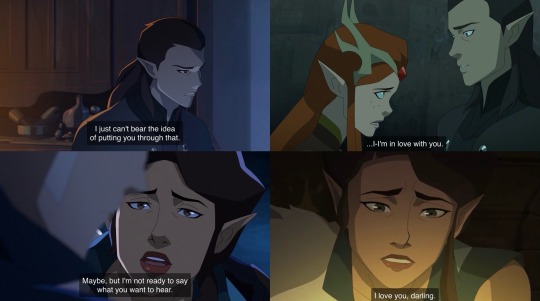
Pike & Scanlan are the only ship we’ve seen neither for, neither a straightforward conversation on the conflict of their relationship itself nor a sincere resolution to their feelings. And I think it has a lot to do with the parallel you can make about their own crisis of identity. Their character motivations and struggles with identity are not entirely dependent on each other as Scanlan has a tumultuous relationship with parenthood and Pike with her faith yet they impact each other so deeply.
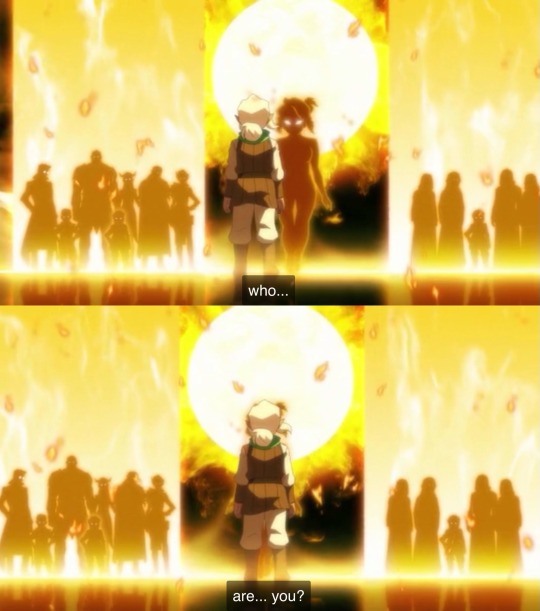

There’s a lot more to say BUT for now… onto whatever season 4 brings for the gnomes!
#pikelan#pike x scanlan#tlovm#the legend of vox machina#vox machina#tlovm season 3#pike trickfoot#scanlan shorthalt#vaxleth#percahlia#perc��ahlia
232 notes
·
View notes
Text
HEAR ME OUT, so I made a list of Ford and Bill's character traits and how they compliment each other. Ford and Bill's relationship is a rather interesting and twisted dynamic which is one of the reasons why I like them a lot. So let's start with my interpretation of the two characters...
Stanford Pines

He a deeply intricate character, shaped by a life that have left him both brilliant and broken. Born as one of two twins, Ford’s life has been a constant struggle with self-worth and identity. His intelligence and curiosity set him apart from others, but they also isolated him, creating a sense of loneliness. This isolation was only deepened by his complex relationship with his twin brother, Stanley. Ford’s need to prove himself became a driving force in his life. Yet, it was never simply about proving his worth; it was about escaping the deep-seated feelings of jealousy, shame, and guilt that had haunted him since childhood.
Ford's brilliance, however, is matched by his flaws. His obsession with knowledge and understanding the unknown led him down dangerous paths, often pushing away those who cared for him. The rift with his brother, born out of both love and rivalry, is a central part of his character. Which is why (if you've read some of my work on ao3) I put the fact Ford thinks about Stan often.
Despite his vast intellect, Ford’s emotional intelligence often lags behind, making him susceptible to manipulation and leading him to make decisions that are sometimes cold and calculating. He is a man who is willing to risk everything—even his own humanity—for the sake of discovery and the pursuit of what he believes is right and what could do good for the world. This single-minded determination, while admirable, also reveals his vulnerability. His self-imposed isolation and his relentless drive to prove his worth have left him with a fragile sense of self that is easily shattered when confronted with his own limitations. Speaking of his limitations, that's where Bill comes in. To make Ford go beyond the limits of his human capabilities.
Bill Cipher
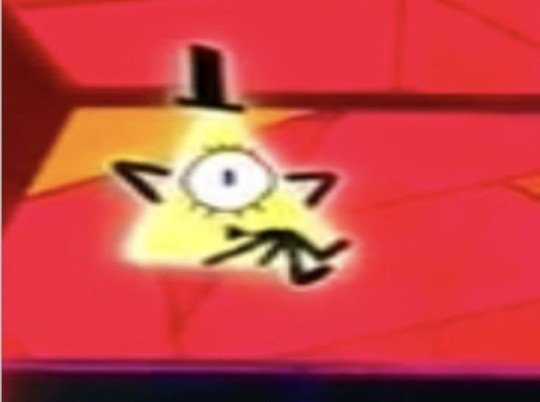
He's a being of pure chaos and malevolence, contrasts Ford's character in almost every conceivable way. Where Ford is driven by a desire for knowledge and understanding, Bill is driven by a desire for power and control. Bill’s complexity lies in his unpredictability and his capacity for manipulation. He is a master of deception, able to twist the desires and fears of others to suit his own ends. Unlike Ford, who is bound by his human emotions and flaws, Bill is unrestrained, reveling in the chaos he creates. He lacks empathy, seeing others only as tools to be used or obstacles to be destroyed. His lack of morality and his enjoyment of others' suffering make him a truly terrifying entity to come across.
BUT. They have similarities, too. Stay with me.
1. Intellectual Curiosity and Ambition
Both Ford and Bill possess an insatiable curiosity and a relentless drive to uncover the secrets of the universe. For Ford, this curiosity is rooted in a genuine desire to understand the unknown, to push the boundaries of human knowledge, and to make his mark on the world. His intellect is one of his defining traits, and it’s what led him to explore other dimensions and study the mysteries of Gravity Falls.
Similarly, Bill is driven by a desire to know and control everything. His curiosity, however, is twisted by his malevolent nature; it’s less about understanding and more about exploiting knowledge for his own gain. Bill’s intellectual prowess is evident in how he manipulates others, devises complex plans (or impulsive plans), and navigates the multiverse with ease. His fascination with the workings of the universe mirrors Ford’s own, but where Ford seeks to understand, Bill seeks to dominate and corrupt.
2. Rejection of Limitations
Both characters reject the limitations imposed on them by their respective worlds. Ford’s entire life has been a struggle against the boundaries set by society, by his family, and even by his own humanity. His six-fingered hands marked him as different from a young age, and this difference fueled his determination to transcend the ordinary. Ford’s rejection of these limitations led him to create the portal, opening a gateway to other dimensions, and ultimately, to his fateful encounter with Bill.
Bill, too, rejects any form of limitation. As a being from the Nightmare Realm, Bill refuses to be confined by the rules of any single dimension. His very nature is one of rebellion against order and constraint. He sees limitations as challenges to be overcome, often through manipulation and force. This shared disdain for boundaries creates a unique parallel between the two: Ford, the man who defied his world to expand his knowledge, and Bill, the demon who seeks to break the rules of reality itself.
3. A Sense of Superiority
Ford and Bill both harbor a sense of superiority, though it manifests differently in each. Ford’s superiority is intellectual; he knows he is smarter than most people around him, and this often leads him to act alone, believing that only he can solve the problems he encounters. This mindset can make him seem arrogant or dismissive, particularly when dealing with those who don’t share his level of understanding.
Bill’s sense of superiority, on the other hand, is rooted in his power and knowledge. He views himself as above all others, not just because of his intelligence, but because of his status as an interdimensional being. Bill sees humans as insignificant creatures to be toyed with, and he revels in the chaos he can create among them. His superiority complex is part of what makes him so dangerous; he genuinely believes that no one can match him, which drives his desire to control and manipulate.
4. Isolation and Loneliness
Both Ford and Bill are, in their own ways, deeply isolated figures. Ford’s intellectual pursuits and his strained relationship with his brother have left him lonely, often feeling like he is the only one who can understand or solve the mysteries he uncovers. This isolation is both self-imposed and a consequence of his choices; Ford often distances himself from others to protect them or to keep them from slowing him down.
Bill, despite his power, is also a fundamentally lonely being. His existence as a demon is one of isolation; he is a creature of chaos in a universe that generally strives for order. His interactions with others are almost entirely manipulative, and he lacks genuine connections. This loneliness could be a driving force behind his desire to dominate and destroy—if he cannot be understood or accepted, then he will make the world bend to his will instead.
5. Obsession with Control
Control is another trait that both Ford and Bill share, though their methods and motivations differ. Ford’s obsession with control stems from his fear of the unknown and his need to protect those he cares about. After his experiences with Bill, this need becomes even more pronounced, as Ford understands the dangers that lurk beyond the veil of reality. His attempts to control situations, however, often lead to unintended consequences, and his desire to keep everything under control can sometimes cause more harm than good.
Bill’s obsession with control is far more malevolent. He doesn’t just want control—he wants total domination. Bill thrives on bending others to his will, on twisting reality to suit his desires. His manipulation of Ford is a key example of this; by gaining control over Ford, Bill was able to bring chaos to the world in ways that would have been impossible otherwise. For Bill, control is both a means to an end and the ultimate goal itself.
Conclusion: A Complex Relationship
The similarities between Ford and Bill make their relationship all the more complex and tragic. Ford’s intellectual curiosity, his desire to break free from limitations, his sense of superiority, and his isolation all made him an ideal target for Bill’s manipulation. At the same time, these shared traits create a twisted mirror image between the two—Bill literally represents the dark potential of Ford’s own qualities, turned towards destruction rather than discovery. That is if you look at it that way.
Together, they form a complicated pair: Ford, the man who seeks to protect and understand, and Bill, the demon who seeks to control and destroy. Their similarities make them more than just adversaries; they are reflections of each other’s strengths and flaws, locked in a struggle that is as much about their own identities as it is about the fate of the world. This dynamic is what makes their interactions so compelling and their conflict so deeply resonant, as each tries to outmaneuver the other while grappling with the very qualities that make them who they are.
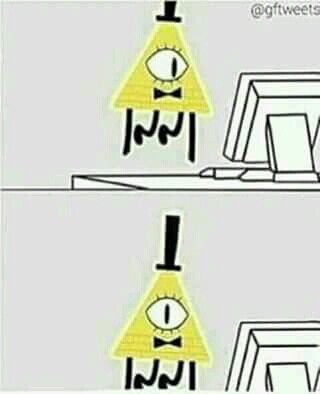
I want to lick these senior citizens— WHAT WHO SAID TJAT
#billford#gravity falls#gf#bill cipher#standford pines#the book of bill#character analysis#character study#toxic old man yaoi
148 notes
·
View notes
Text
Hi all!! For those of you who don’t know me, My name is Ella Griffin, I’m a 24 year old trans woman based in south florida. For the last four years, I’ve been working on a super special project that I’m beyond thrilled to share with you all: my debut novel, The White Liar. As a big fan of fantasy books, I’ve felt for a long time that there’s a serious lack of authentic trans representation in the genre. For years, I yearned for even just one iconic transfem hero in a high fantasy setting. The White Liar is my attempt to fill that gap in the literary canon.
As a bit of background, I am a massive fan of hard fantasy books with an epic scope and in-depth magic systems; such as Brandon Sanderson’s Cosmere books or Ursula Le Guin’s Earthsea series. I’m also a big fan of gothic literature and character-driven classics like Victor Hugo’s Les Miserables and Anna Karenina, all of which have played an influence on this book. The White Liar’s setting is heavily inspired by celtic folklore, mythology and history with a feminist twist.
It’s a world where fae creatures range from tiny glowing insectoids to massive flying mounts and even humanoid beings. Yet, even the tiniest of these has the potential to unlock unfathomable magical potential through the art of Serimancy! Serimancy, the primary magic system of the book, gives users the ability to transmute or ‘spin’ the silk made by fae creatures into supernatural strength, telekinetic threads, and twelve other distinctive powers. Think Rumplestiltskin spinning straw into gold, but more vaporwave.
Without giving too much away, the book features a diverse cast of characters from all different backgrounds, including transfem, transmasc, nonbinary, aspec and disabled characters, although those aspects don’t always define their motives or character arcs. Mainly, The White Liar is a book about the nature of truth and identity; the ways in which our environment affects how we perceive those things, and the friction that creates with our own perception.
I would also characterize the book as a gaslamp fantasy like the Mistborn series or the video game Lies of P, with a baroque/art nouveau-meets-Bridgerton 19th century aesthetic. I’m a 100% independent author with a summary $0 budget publishing through kindle direct, and flat broke, so I would highly appreciate any and all support with this project, be it word of mouth or otherwise. The cover art is a digital painting created entirely by me and is canon to the book!
Thank you so, so much for giving me your time and attention. This book is my love letter to the queer community and I truly hope someone somewhere finds it hopeful or inspiring like I’ve found with the works that inspire me.
The White Liar is available now on E-book here:
#mine#The White Liar#indie author#indie fantasy#trans author#lgbt fantasy#gaslamp fantasy#art nouveau
86 notes
·
View notes
Text
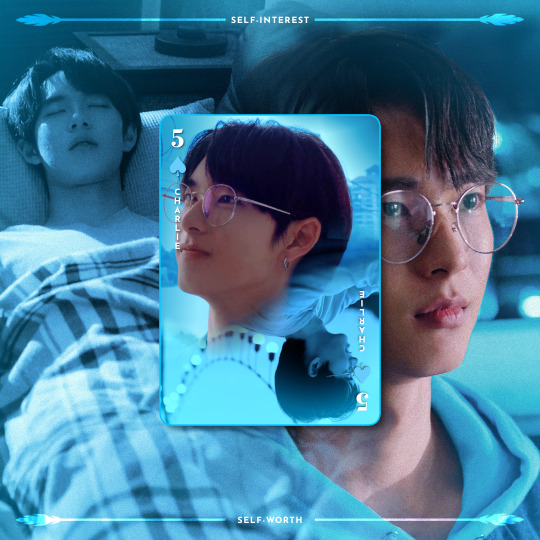
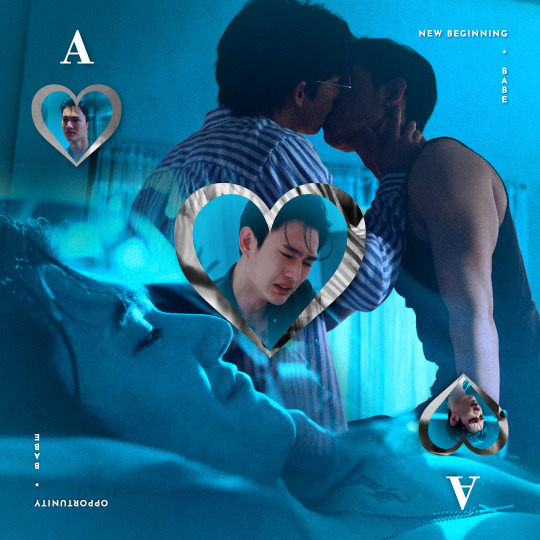
Pit Babe Characters x Cartomancy ➣ Part 1: Charlie & Babe
Five of Spades: Focusing on self, putting own interests first. A reminder of your self-worth. Ace of Hearts: New beginnings; new relationship and love. A chance for something better.
for @pitbabeanniversary week 1 prompts: charlie & babe
(more thoughts under the cut!)

disclaimer: i am not an expert in either cartomancy or tarot reading. i did a lot of research on these two sites to come up with these cards for the characters. some of the meanings associated with the cards are still only my own interpretation, so they might not be completely accurate.
as ppl who know me probably can tell, i am (despite my lack of knowledge most often) a huge nerd who loves this type of stuff (personality tests, astrology, mysticism etc.). most of all, i love analyzing stories and characters, and so this idea was born. never thought i'd approach it through pit babe though, yet here we are.
thoughts on my picks for charlie and babe:
charlie: it was hard to pick a card for charlie, but behind all the happiness and sunshine, i think the defining characteristic for charlie is (self-)sacrifice. while growing up under tony's "care", charlie learned that he was worth less: less than other (special) alphas, less than other tony's children, less than the world beyond the house, and of course, less than someone as perfect as babe. and so as he leaves the house and embarks on this adventure to help babe and set them all free, he assumes he must sacrifice himself to accomplish those things. his sacrifice comes in many forms, yet even the most ultimate one (his death) does not seem to bother charlie.
based on these thoughts, i found it fitting that charlie's card would remind him of his own worth and make him think about his own (selfish?) desires. he's not just a body thrown at tony's feet to keep others safe – he's also a human with his own hopes and dreams, with his own purpose. he seems to find this with babe (and the rest of the x-hunter pack) and learns to accept himself as someone who cannot be replaced and who can just live for himself.
babe: for babe, the card felt more obvious. first of all, it was clear to me that babe would get one of the hearts – he is, above all else, an emotion driven person. he is arrogant, confident, proud, ambitious, and even aggressive at times, but he is also a boy searching for love. i know that he's learned that love doesn't come without conditions; that whenever love is offered, people ask for something (most often painful) in return. and so as the show starts, babe's motivation to go on this journey isn't victory or fame as he already has those, but love. what he lacks in life is love, and that's what life decides to gift him.
so this thing with charlie offers him a new chance, a new beginning, where things seem better and easier. of course it doesn't last, and they fail at times at love as charlie's lies get revealed and other ppl betray them, but eventually they head towards something better. the newly found intimacy and love with charlie changes babe's life and also changes him as a person. he becomes softer, happier. he learns that he can be loved unconditionally and that there are ppl out there who are willing to stand beside him even when he's not pit babe or a special alpha with special senses or tony's perfect son capable of anything (or worth a million bahts).
and then these two as a pair? i cannot say much about it bc i cannot read cards, unfortunately. but i find it interesting (and very fitting) that charlie and babe belong to the suits of spades and hearts. charlie brings with himself trouble, pain, and challenges (unintentionally and he'd rather hold those at bay but well, his past follows him everywhere). there are also hints of obsession and fear on charlie's side. meanwhile, babe is filled with emotion, both positive and negative, and he is tightly tied to all the relationships in his life. he is the heart of the pack in a sense, and so thinking of him as the beginning of emotion, as the ace of hearts, feels suitable. he is the new beginning for everyone bc babe is the one who pulls charlie in who bring with himself the change for the whole pack and other ppl involved with them.
(if someone more knowledgeable about cartomancy or tarot who also enjoys pit babe stumbles upon this, feel free to come share more thoughts with me!)
#pitbabeanniversary#asiandramanet#fyeahthaidramas#boyslovesource#pit babe#pit babe the series#charliebabe#countaspieceofme#userjjessi#mjtag#lextag#userrlana#rinblr#uservid#uservix#userspicy#userbon#tusermona#userkareena#userhanyi#tusersilence#anialook#usertoptaps#lightmiup#time for the brainrot to take over#excuse me for that
90 notes
·
View notes
Text
Qiu Lin character/enneagram analysis
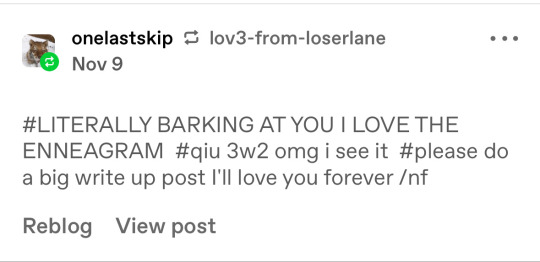
@onelastskip thank you so much for the request!
I did have every intention of making this write up, sorry it took so long!! Unfortunately a lot of my hard ““evidence”” comes from beta and other patreon exclusive content, but I can absolutely write a more generalized and theoretical response about Qiu’s enneagram. And I literally just replayed the prologue yesterday so it is freshhh.
(I also love the enneagram, I prefer it over MBTI. Great minds think alike ;) )
And if you’re a newbie to the enneagram, don’t worry! I’ll be thorough with my explanations, so you should be able to follow along. Verrrrrry thorough hahahhaah. This post is literally over 2k words.
But! Just think about this as a general character analysis through the lense of the enneagram. It’ll be at least kind of interesting and fun, I promiseeee 😉🤞
So, anyway, let’s get started then.
I typed Qiu as a 3w2 sx/so
So what does this mean?
I believe that Qiu is an enneagram 3 with a 2 wing. The instinctual variants for their enneagram being sx and so. I’ll explain what that all means later on, but we’ll start with just about the basic description of the enneagram.
Enneagram 3 Description
The Enneagram is a personality theory that aims to describe the most vulnerable parts of ourselves, our hopes, our fears, our motivations, and potentially our trauma. It’s how we see the world and make sense of our emotions.
So then, what does it mean to be an enneagram 3?
Well, 3s in their most basic form, can be understood this way:
The enneagram 3 is defined by their need to differentiate themselves from other people through their accomplishments and can appear incredibly ambitious and goal oriented. 3s like to keep themselves busy, and their schedules are usually jam-packed with things to do. They’re very charismatic and acutely aware of the correct polite conduct. They make it a point to make good first impressions. 3s do not believe that they are inherently worthy of being loved, however, and that being loved comes as a result of what they can achieve. 3s fear their own irrelevancy, and are driven by a need for attention and admiration.
I’m sure you noticed that some of that description does fit Qiu! However, there’s a lot that *doesn’t* which probably stood out, and needs to addressed.
Like, what’s this about being super goal-oriented, ambitious, and needing to be successful? Nothing about Qiu, from what we’ve seen, proves that to be true about them.
Those of you who know the enneagram may even be thinking, “well, what about enneagram 2? They’re also people oriented, want to be liked and appreciated, and then we don’t have to worry about the fact that Qiu doesn’t seem necessarily ambitious or goal-oriented on being successful.”
Well, I kinda mislead you there. Because I think Qiu is very ambitious and goal-oriented, just not in the way we traditionally think about these concepts. Usually we think a person with these traits aims to someday have a high paying job, invent something new, do something genius that’ll get them celebrated worldwide or accumulate a comfortable amount of wealth. Which doesn’t sound like Qiu at all. But that’s not the only way this desire can be exhibited.
Instinctual Variants:
Thats where the instinctual variants of the enneagram come in. Instinctual variants are basically just subtypes of the enneagram, different ways in which the same enneagram can be presented. And it’s a part of enneagram that is relatively more unknown, but can actually be a huge help in figuring out which enneagram applies to you/a character. (So if you’re into enneagram at all, I recommend checking them out! Fair warning: the instinctual variants can really delve into the worst possible version of your psyche in a lot of cases, so be prepared for that. Be honest with yourself.)
Anyway, the instinctual variants are abbreviated as “sx”, “so”, and “sp”. These stand for “sexual”, “social”, and “self-preserving”, respectively.
I typed Qiu as a sexual 3. NOW CHILL cause before you come at me “sexual” doesn’t LITERALLY mean sexual, sexuality, sex, etc. I mean in some cases it can definitely be related, but it does not mean that inherently. And that’s not what I’m gonna be talking about with Qiu like at all. I don’t know why they called it that, I didn’t make it up. I just read about it and then apply it to fictional characters in my tumblr posts 😪
But anyway, the sx 3 can often times not look like a traditional 3, which would make Qiu a little difficult to type as a 3 initially. But once you get into the description of the sx 3, it starts to become more clear.
Sx 3s aren’t so much focused on making achievements in the real world so much as they are on pleasing others and creating an appealing image around themselves. They extract feelings of accomplishment from the happiness and success of the people around themselves. Unlike other 3s, sx 3s aim to connect to others mentally through supporting them. They expend much of their energy for the sake of other people, and they’re hardworking and ambitious in this way. They don’t necessarily feel the need for tangible achievement like other 3s. They love, admiration, and desire of others is enough for them. They are unconventional achievers in this way. Sexual 3s have a very community driven mentality, where they’re always looking out for the greater good of the whole team.
They can also often times feel the need to play into the role of an easily digestible feminine or masculine image, depending on how they were assigned at birth 😳 Whichhhh I want to yank a quote from the beta moment “fancy fun” for this so bad. But you’re just gonna have to guess what I’m talking about if you played it. And if you haven’t, I’m sorry 😔‼️ but I do feel like this point can be somewhat inferred from the demo, if only abstract based on how Qiu conducts themself.
Now, the enneagram 2’s flavor of wanting to be “likeable” isn’t necessarily rooted in being admired and looked up to. In a lot of ways, it’s the opposite. The enneagram 2 wants to be useful and needed by others. Qiu may feel like they are useful and that they are needed, but that’s not necessarily what they’re looking for. Qiu at the end of the day just wants for people think they’re cool and kind and the best friend ever. Which is why I don’t think they are a 2, they simply have a 2 wing. (The wing just being another thing that indicates what way the enneagram presents itself).
So yeah, I think sx 3 is the perfect fit for Qiu. Because while they don’t necessarily need to be revered for any personal accomplishments, (only rarely taking the opportunity to brag, and if they do it’s played off more or less as a joke) they do however have this intense need to be liked as a person and looked up to for that reason.
Childhood Wound:
Another way we can infer somebody’s enneagram would be based on their “childhood wound.” In enneagram, this would be the root of where this person’s enneagram would come from. Meaning yes, a person’s enneagram is established during their childhood years and does not change.
The childhood wound of the enneagram 3 is as follows:
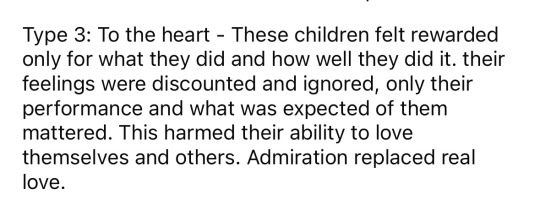
(Screenshotted from a deleted user on Reddit)
Based on some information given in the QnAs on patreon, we can infer that this is true of Qiu’s childhood. But I also believe it can be inferred by public content as well.
Based on how Qiu conducts themself, I don’t think kids in Golden Grove ever really appreciated Qiu for being Qiu. People liked them because they were expending themselves for the sake of others, trying their best to include everybody and putting on this “act” of being cool about everything. They actively minimize their own needs/boundaries while being hyper aware of everyone else’s. This made them likable, which made them popular, which made them a high commodity to their classmates.
We also kind of get this in the explanation for Baxter’s crush on Qiu. Baxter could have liked Qiu genuinely, I’m not discounting that at all, after all he was one of their closest friends in childhood. However, the way he goes about rationalizing it to himself is this:

(Screenshotted from the GBPatch tumblr)
“You’re popular, so why shouldn’t I like you.” And it’s safe to assume a lot of other people felt the same way about Qiu, whether it be related to a crush or completely platonically. It was this sort of self fulfilling prophecy where Qiu tried their best to live up to the expectations of others, which made them even more desirable to people, which made them feel they had to become subservient to these expectations, which made people want them all the more. And in a way, they themselves kinda wanted that. They actively seek out that kind of attention and feel fulfilled when it’s received. But not to this extreme of a point, as we can see in Step 2.
What about Step 2?!:
That brings us to one glaring problem some may already be considering. Qiu’s personality in Step 2. It seems to have taken a complete 180 from how they were in Step 1.
In Step 2, the last thing Qiu wants is attention or to be around people at all. They could seemingly care less if they’re liked which can be observed in how they treat Tamarack’s concerns about their litter in the current Step 2 preview. They straight up disregard her feelings completely, and not politely. Qiu really just wants to hide away from it all and not be bothered. And if the enneagram is developed during childhood and then never changes, wouldn’t it be better to find something that also encompasses that side of them? Maybe they’re not a 3, or even a 2!
Weeeeeell ackshually ☝️🤓, I think enneagram 3 is still very applicable to Step 2 Qiu, but there’s not much I can say about that *definitively* at the moment.
However, we do have this description of Step 3 Qiu to work off of:
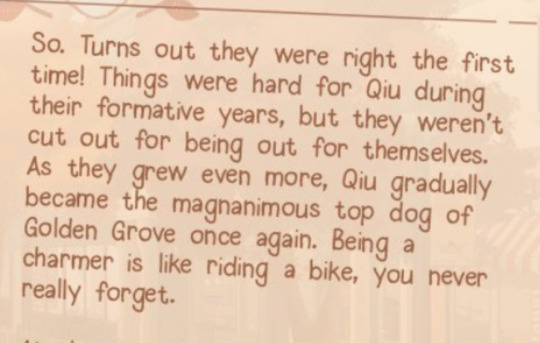
(Screenshotted from the GBPatch tumblr)
So obviously, Qiu’s presentation in Step 2 isn’t all that it seems. Qiu is actively *going against* their true nature during Step 2 for one reason or another. My best guess would have to be that they feel they previously let their identity rely too heavily on the needs of the people around them, and that notion freaks them out. So even if, in a way, their true identity DOES revolve around what they can be for others, they also want to make sure there’s a real, individual, person in there somewhere. Maybe in a twisted and fucked up way you can suggest that it is in fact because our culture heavily celebrates and looks up to that kind of individuality. Like, we as a society can consider it an admirable quality to be an outcast for the things that make us unique. That could potentially be added motivation. But thatssssssss really pushing it kind of and I’m talking out of my ass a little bit. So I’ll leave it there. 🥱
Either way, we can conclude that in Step 2 Qiu is not at all a “completely different person,” I don’t really think that’s even possible, and tbh I hope people don’t believe that about them. But I do think that they are actively *trying* to be. Which is sooooo 3, in a way (I sound like an astrology girl heheh >:3) But yeah, as a young teen, you think you know you want a lot of things. And then when you grow up, you realize that’s not what you actually wanted in the first place.
Side tangent, this is also why I loveee the idea of playing the game with jealousy/envy turned on for Qiu. I just feel like it’s so natural to their arc, but that’s just my own personal interpretation/preference.
But anyway, that’s how I came to my conclusion, Qiu is an enneagram 3w2!
Conclusion:
Let me once again reiterate that this is literally pseudoscience, so there isn’t an end all be all. You could totally think I was wrong and have your own ideas, and we could all totally be wrong and right and the same time together. I just do this stuff for fun, cause I think it’s cool and interesting and helps me better understand both my favorite characters in fiction and the viewpoints of people completely different from me ^_^
If you read this, I honestly CANNOT thank you enough, seriously. Because wow this post was crazy and long and insane and insanely crazy long. And I feel like I’m really bad and disorganized when it comes to explaining things. But I appreciate it if you did take an interest! I hope you were entertained and learned something new.
Qiu was specifically requested, and this post is long enough as it is. And that’s without all the beta and patreon stuff, which then we could be here for hours getting into the nitty gritty details. But anyway, I would love to do a separate analysis on Tamarack’s enneagram next. Though spoiler alert, her’s will be a lot moreeeee theoretical and hard to explain T~T I’m sure that would be super fun for me to attempt though HAHA. So if you’d be interested in that, let me know! And if you wouldn’t, too bad because I’ll probably do it anyway!
(PS. I tried to make sure not to give away anything directly related to content only included in the patreon. But, if I made a mistake, please let me know and I will edit it out of the post immediately!)
My references:
#Ame rants about shit only she cares about#Ame is Nuts#typology#enneagram#Qiu Lin#olnf#our life now and forever
43 notes
·
View notes
Note
50.) "If it means both of us must perish, so be it!" With a yandere Kaido who threatens his forced wife reader , that if his time has come he’s dragging her along with him , please if this request makes you uncomfortable you can delete this no worries;)
Sure! I'm sorry if this is short or not entirely accurate... I haven't actually seen his arc yet but I really like his character!
Yandere! Kaido Prompt 50
"If it means both of us must perish, so be it!"
Pairing: Romantic
Possible Trigger Warnings: Female Darling, Obsession, Possessive behavior, Suicidal behavior (Kaido), Murder, Blood, Kidnapping, You want him dead, Heavy drinking, Forced marriage/relationship.

In the time you've known Kaido... you've learned his nature well. You know him and his title... a force to be reckoned with. He's the world's strongest creature, and Emperor of The Sea...
He's a powerful being driven by war... it defines him... the power is like a drug to him...
Yet such a beast feels oddly... leashed to you, a mere human.
You knew Kaido as your captor. To you, that's all he ever was. No matter how many times Kaido would call himself your husband... He was really just your captor.
You were forced to play his wife, living in Onigashima in Wano Country. You don't typically be affectionate to the beast who calls himself your husband. Yet you also know not to fight him when he requests attention from his wife.
You learned of his habits through watching him. It's the only thing that you felt you could bring yourself to do other than seeing Kaido slaughter those around him. You didn't like to think about that.
Kaido adores war and fights, he often spoke about honor on the battlefield to you. As his wife, you quietly listened as he rambled, no doubt drunk on some alcoholic substance. You knew he loved his alcohol just as much as he adored fighting... and you, apparently.
Another thing you noted was Kaido's... wish for death. That was another thing he rambled about endlessly to you. He spoke fondly of war, violence, and the glory that comes from dying in battle.
These conversations were normal between you and Kaido. He's a warmongering emperor who does anything for battle. Him talking about dying was... oddly common and normal when it came to him specifically.
As his wife you also knew of Kaido's attempts on his own life. Due to being a nearly indestructible beast, said attempts never succeed. However, part of you always seems to hope they will.
Mostly so you can be let out of this hell.
Kaido's obsession with death never really concerned you at this point. He's been like this since your capture years ago. You used to be part of a crew...
Now you're meant to be a beast's plaything, it seems.
You've grown used to your prayers not being answered when Kaido comes back to you. Sometimes you just wish someone strong enough will do the deed already. That way you both get what you want...
Kaido gets his glory and you get your freedom.
Until then, you're forced to sit on him while he drowns himself in his alcohol. You can only listen to his talks about idolizing death and dream of it. Not for you...
Just him.
Although, as time went on, his ramblings changed... and it scared you.
Kaido starts rambling about you. At first it's all strange compliments and pet names. He calls you his pretty little wife... his little mouse and toy. He talks about loving and keeping you forever, laughing as he holds you while you stay silent.
Then he brings up dying again... This time together.
He fantasizes about it despite your sudden tense expression. He gleefully rambles about glory, but this time with you by his side. He tells you that you're his, that he can't leave you all alone...
He tells you that if... when you two die together...
It will complete you both.
You were used to him keeping his death fantasy to himself. But now he seemed too... connected with you to let you go. He tells you that you two will only ever truly be perfect when you die together.
He brings it up more and more and it only makes you more concerned. After all... this is a sudden switch. You really don't have an escape now... do you?
You often think of Kaido's words now... His dark fantasies and delusional ramblings...
You only ever seem to think of them more often once he calls war on those Straw Hat pirates.
"It will be a glorious fight!" Kaido calls to you in your home, an excited grin on his face. You've rarely seen him grin.
"I haven't had a strong opponent in a long time, my love..." Kaido growls, eyes staring down at your smaller form. "I want you there for it."
You freeze when Kaido picks you up like a doll, his grin haunting.
"I want you to witness our greatness! I want you to be there encouraging me! You are my wife, mine forever... You will witness glory, my dearest..."
You then feel Kaido squeeze you a bit, making you feel nauseous as you realize what all of this means...
"I plan to experience glory, my love... I need to feel complete with you." Kaido admits, a large finger running down your back.
There's a momentary silence as Kaido stares down at you, seemingly contemplating something. You can't seem to find the air to breathe when he looks down at you. This is it... isn't it?
"If it means both of us must perish, so be it!" Kaido suddenly roars in laughter, holding you against his chest as he begins to leave your home.
You're shaking but Kaido only seems to find it amusing. He keeps you close, making his way to his newest battlefield. This felt like your Judgement Day...
Today, you die.
"Do not be so fearful..." Kaido suddenly scoffs, eyes looking down at you.
"You should be looking forward to this, wife... Today, we experience greatness! We experience glory and completion..."
Kaido then pulls you up to his face, a sinister grin on his face.
"I want you by my side when I die..." Kaido tightens his grip, glaring as he notices your nervous behavior. "You won't run, you will obey your husband. Today... You and I will be complete..."
You then feel him apply pressure to your midsection, a warning and order that forces you into desperate compliance.
Kaido makes one more roaring laughter as he continues to carry you...
"Today... We die together... Now and forever, you are mine and mine alone."
45 notes
·
View notes
Text
I love Nagi being a "I didn't sign up for this crap but fml the crap is starting to feel interesting and move me in mysterious ways" protagonist. Like:



And while that's common with the lazy genius trope, where it actually gets super interesting is when Nagi starts to really ask himself why he is feeling this way, and what is it that he even wants:


This panel below is really cool, not just because it definitively marks Nagi's transformation from a passive to an active character in his own story, but also art-wise I love the grey and black smoky tendrils curling around him. It creates an aura of something really dangerous, like poison gas, like he's not human (a bit like Venom in Spiderman?)

Dark smoky auras are not new in manga but I particularly like the way Blue Lock does them. And how it uses effects like these to depict a character's overall mood or the perception they give to others. Like look at Isagi's face here he looks like he's watching a scorpion shed it's skin.
I think effects like these are especially useful for a character like Nagi since his facial expressions are designed to hide more than they reveal. But I also like that they are used sparingly. We don't see the smoky darkness or skull aura all that often, at least early on. Because unlike other characters, Nagi feels his main character energy quite inconsistently, in between a lot of very "bored/tired/it's a pain/I don't wanna" moments. So those sudden bursts of pride or determination feel all the more impactful.
I think Nagi in the current timeline needs a hard reset back to the line of questioning and soul searching we see in the panels above. He kind of is getting there (post-match conversations with Rin and Barou) but the danger is that the stakes are too high now and will not allow him all the time in the world to figure it out.
The problem is very relatable especially if you're someone who cannot settle on what to do with your life and why, while everyone around you seems to be laser focused and driven and knowing exactly what they want. And sometimes even though certain moments can stir your soul, they don't necessarily help you magically find motivation in the long term. But time is running out and you'll get left behind if you don't figure it out soon.
In moments I do feel like the slow-burn existential crisis which defines a lot of Nagi's journey is frustrating, but then I realise that shit is even more frustrating IN LIFE, and so this is actually more realistic than I thought. 😔
#episode nagi thoughts#nagi seishiro#episode nagi#bllk#blue lock#this post started off chill and got serious 😭#existential dilemmas#manga panels#manga art
81 notes
·
View notes
Text
Thoughts on Kuya, autonomy, and his refusal to be "captured"
(spoilers under the cut)
This SSR story is sooo good because it really fleshes out Kuya's all-encompassing hatred of being owned? Not just in a literal sense, but in an obligations/expectations kind of way too. He repeatedly states over the course of the game that he shouldn't be forced into a box, can't be defined by human morals, and has so many wildly different facets of himself that they're basically autonomous copies running around in alternate timelines.
He insists that Elysium allows visitors the right to choose if/how they participate. He seems to hate injustices that trample one's freedom (unless he's the one perpetuating said injustice— in which he considers his actions Wise And Necessary™️). He loathes being claimed as a prize. He also clearly hates being pandered to, especially when his suitors have ulterior motives and expect him to stay by their side forever. He hates when humans assume what he likes, and commit crimes against nature in order to please him. He spent centuries at Huey's side (literally indentured to him in a life-or-death contract), and even spent time in service to the lord of the yokai himself, who forced kuya back into his fox state when he was found during a suicide attempt. He was literally voided of essence to the point that he had to relive his most vulnerable years again. He experienced a loss of power and autonomy that probably felt like a betrayal. Granted it was a punishment intended to teach him humility, but it probably just traumatized him instead.
(This may also explain what happened on the Saian ship with Huey, when he was discovered in his true yokai form— something went wrong with corrupted essence, they couldnt teleport back to Klein as usual, and he burned the ship down when someone spotted him looking "beastly". It hit too close to home for him.)
Prior to meeting Eiden, he'd run out of things to enjoy in life, and turned to torturing small forest animals just to get some dopamine flowing again. He's a sadistic contrarian piece of shit but it makes sense that he feels rage against immortality/life itself, and probably approved of Huey because they shared an interest in exploring new horizons (not to mention the massive power boost he got in return).
So in this SSR r5 when he pauses in relief/shock after eiden tells him he cant force kuya to stay by his side forever, it all kind of clicked into place for me? Everything about kuyas character screams Do Not Attempt To Capture Me. He literally exploded a roomful of men who tied him down in Rusted Nation. He made a group of gamblers claw their own eyes out for daring to look at him with sexual intent. He even destroys offerings from other yokai who put him on a pedestal. He hates being expected to do anything for anyone for any reason, because those expectations often come with gross connotations or lasting debts, and have been repeatedly imposed upon him without his consent in the past.
His biggest fear might literally be losing control again.
(Of course he's a big hypocrite and does everything he hates to other people? And sometimes doesn't even realize he's doing it? Like in Astral Duo when he asks Quincy if he's done "something unforgivable" to Eiden, as if Kuya himself doesn't do unforgivable things on a daily basis).
Idk. He's just fascinating to me and I love how he seems to be driven by a pathological need to escape. He's not unaware of his weaknesses, as evidenced by him flinching when Eiden reaches behind his blind spot. He seems to be terrified of capture in every sense of the word, and does everything possible to overcome that.
Like a cornered animal :)
137 notes
·
View notes
Text
Mars through houses
🏹1st house
You have this individualistic and competitive side to you. You are driven by exploring and always looking for the next challenge, while wearing your failures on your sleeve, without shying away from them. You value self-expression through your personality or appearance. You always vouch for the things you believe in and can easily get angry with the world. Sometimes your temper is expressed in an impulsive way and it’s important to find activities, such as sports or meditation that keep you balanced. You are able to motivate yourself and are action-oriented. It’s important to trust your instincts, but also know when it’s time to take things slower and get out of the fight zone while allowing others to take the initiative too.
🏹2nd house
You are motivated by practical things. You usually value quality over quantity in everything you do. You are driven by the idea of making it on your own and are looking for ways to improve yourself daily. Success is also something you are interested in, but you can sometimes get a bit too focused on the material side of things and let your ‘status’ define you and put you in comparison mode. You are into self-growth content and are really self-aware, but sometimes it’s okay to let loose. You also value the feeling of comfort, so a balance between not falling into the lazy trap versus being on top of your to-do list is always a good idea. Financially this is a great placement to have if you handle it well.
🏹3rd house
Communication and expressing yourself through sharing your ideas and thoughts is your greatest asset. You are a great manifestor if you put your mind to it. You might sometimes get stuck in overthinking or allow yourself to be influenced by others’ opinions often and this keeps you from being focused on your path. You are rational and have a lot of meaningful information to share with the world, so just remember that your wisdom lies in observing others and then going inward and speaking your own truth. You are driven by honesty and motivated when you feel heard. You enjoy discussing different subjects and get threatened by words, as they hold great meaning. You would make a great motivational speaker or teacher.
🏹4th house
You are motivated by anything that feels familiar. You are always looking to find a safe spot to go back to and you thrive in finding new solutions to things that might seem mundane. However, you can sometimes get stuck in your comfort zone if you don’t push yourself out of it. You tend to have this introverted side to you and you mostly take action when you feel comfortable around others or behind the scenes. You like to keep things private and not a lot of people get to see your feisty side. You are likely to build a beautiful family on your own terms and are motivated about decorating your own place. You have a big heart and value empathy and emotional connections. You always protect your loved ones.
🏹5th house
You are driven by anything that makes you the main character. You enjoy having fun and like finding pleasure in everything you do. Otherwise, you might not do it. You are highly creative and naturally talented and people appreciate this about you. You have a unique aura that stands out in the room. You know how to make others smile and take the role of the entertainer when you need to. However, you might want to live in a child-like world and get bored easily, so you should balance it with practicality. Being in creative environments helps you thrive. You are attractive and flirtatious and can allure people that are focused on the fun side of things. When looking to settle down, your priorities can change.
🏹6th house
You are driven by keeping a routine that is true to you. Being organized, in your own way, is what keeps you motivated. You might be careful about the type of lifestyle you have and the way you manage your chores. There is a high connection between your health and energy levels, so if you feel low you might want to take a break or listen to your body. Keeping your body moving is also really important and you could even make a job out of your lifestyle. You are driven by working in a team and being of service to others. However, you can sometimes get so caught up in these daily tasks that you forget to see the bigger picture. Invest in spirituality and think of your overall life path, but do take breaks, too.
🏹7th house
You are driven by creating connections with people you resonate with. You have this loving side to you and a side that is driven by anything that has to do with harmonious relationships, however, you might not consider yourself to be this way. This is why, in order to create meaningful relationships and find your drive, you need to look at how other people’s behaviors are mirroring yours and this will help you learn a lot about yourself. You are looking for high levels of passion in your relationships and might sometimes react impulsively. You are likely driven by getting married or collaborating with others and creating something together. Teamwork will actually help you stand out and lead.
🏹8th house
You are driven by the mysteries of life. There is something about the unknown that drives you in, this is why you can find yourself in situations that are rather intense or attract people that are this way. The reason this is happening is that there is this inner turmoil you might be scared to face, so it seems easier to see others as solutions. In reality, you have so much inner power that if you knew about it, you wouldn’t be giving it away. Invest your inner callings and private time spent with yourself and people that are meant for you will align to that and meet you in the middle, there is no need to make yourself small. Address the things that seem scary and you are going to find your inner power.
🏹9th house
You are a curious person, adventurous and always looking for the next thing to study or learn. Reading, learning a new language, meeting people from different cultures, or exploring new food and traveling is what excites you. You are the type to think about concepts and always be open to new ideas and beliefs. You are inclusive and have a funny side. You can sometimes feel lost and want to live at a more speedy pace than you can take in reality. It’s important for you to create these small rituals you always go back to in order to relax and keep the anxiety in check, as wanting to do too many things at once and getting bored easily might end up stressing you out. You are not missing out on anything, so chill.
🏹10th house
You are always looking for the next goal to reach, you are observant and strategic and there is this very career-driven side to you. However, this can sometimes keep you in a state of alert and thinking of work a bit too much. People might sense that and will try to get you out of this zone. Give yourself time with family and loved ones, going out and spending time on things that feed your creativity without it being an end goal - just for fun! Whenever you put your mind to something, you do reach it. So, stop being so hard on yourself and know that you are more than the goals you reach. You have the ability to make a great leader and your sense of responsibility and realism is highly needed in today’s world.
🏹11th house
You are driven by anything that is new and slightly weird. You have this eye for things that might be excluded from society. You are the one to stand up for the underdog and to help people find their voice and speak up. Your ideas are innovative and you are likely to lead a community or create one. You thrive around your friends and love meeting new people, although you somehow never seem to fully fit in. But the truth is that you don’t have to. As long as you follow your authenticity, you’re all good. Sometimes, your friendly vibe might give off the wrong signals, so make sure you speak truthfully and set boundaries where needed, just so no one gets hurt. Also, remember that teamwork is better than working alone at times.
🏹12th house
You are a mystery in itself. You are the dreamer, the misunderstood at times. You believe in magic, but you might not ever admit that. You are someone that is driven by the better of humanity and sometimes you can get so attached to the idea of being there for another that you lose yourself. Spirituality is your biggest asset and the more you dive into the depths of your subconscious, the more you will find your inner power, outside of others' influences. You have a strong connection to a past life of yours, so you might be getting signs and guiding messages from that time. Your intuition is subtle, but it’s just about believing and you’re able to reach any goal. You sometimes feel the need to escape, so do it in healthy ways.
997 notes
·
View notes
Text
This Week in BL - A Lot Ended, Quite Bit Started, I got things to say about it all
Organized, in each category, by ones I'm enjoying most at the top.
Nov 2023 Wk 2
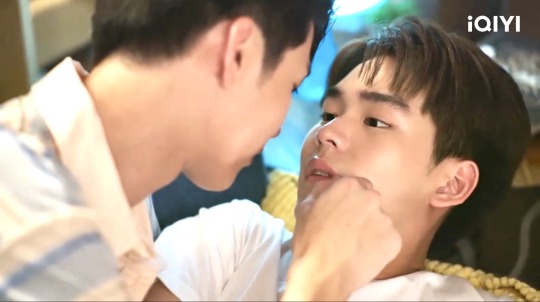
Ongoing Series - Thai
My Dear Gangster Oppa (Thurs iQIYI) 3 of 8 - This is just a great BL. So fun with few frills and paced nicely. Thai talent + Korean story is proving very harmonious for narrative flow. I’m delighted. I love that they don’t shy away from letting Tew be an actual violent criminal who is just gone and mushy for this one geeky cutie. Also I appreciate it when a show hangs a lantern on its own plot failing. In this case, the main character being drunk as a plot devise 2x in subsequent eps.
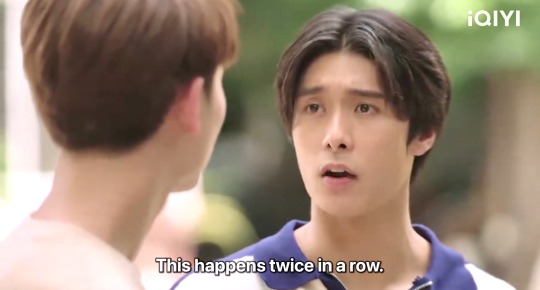
Twins the series (Fri GaGa) ep 2 of 10 - Love it. Love Spite and his chronic guilt over his younger brother, the golden child. Love that he is driven to repair for a past that no longer exists. Evil mom who cares more for what her son can do than that son, let alone his brother. The volleyball well…. erm. I played varsity (setter) so this is amusing to me but I’m not mad about it.
I agree that this Not Me just sports and pulp.
Last Twilight (Fri YT) 1 of 12 - JimmySea are back and is this... good? Do I like this? I don't have faith, GMMTV has been doing us dirty lately. But I think I like it! Why The Little Prince AGAIN? Ugh.
Middleman’s Love (Fri YT & iQIYI 1 of 8 - Domundi giving us an office comedy hyung romance staring TutorYim (Cutie Pie) with NetJames (Bed Friend) and LeoTai (Friend Forever) providing support. Lets hope they stick to only 8 eps. Buckle up, I got shit talking to type.

I warned ya out the gate that this is a Cheewin comedy, so tonally it could be very OFF, and boy howdy is it EVER off. There's a place this kind of show goes where it's so cringe it's visually rotten and this one went there out that gate. Also, I'm gonna say it because no one else has, Yim is not good in this role. Comedy is HARD to do and Cheewin isn't doing this green actor any favors. He's chewing the scenery like a woodchuck after a diet.
To be fair, Tutor isn't great either, but he's been given less rope to hang himself with. Mai is currently suffering from seme obscurity: the love interest's defining characterization being = tall and handsome. (Which is not characterization... agony... glares at Cdramas.) We will see if he gets a personality, but based on past work form this director and this writer, don't bank on it.
Frankly? I'm not convinced either of them are mature enough as a pair or as actors to carry something this abrasive and to stand up to Cheewin's visual abuse of our eyeballs. I think this is going to be a rocky ride. HOWEVER, because it has tropes I'm good with (as opposed to SCOY) I'm sticking with it for now but this is gonna be ROUGH going for everyone.

Backstory: This used to be a JimmyTommy vehicle before the pair split (also prev title Middle Love). Adapted from a Y-novel. I can actually see Tommy in this role very clearly and I suspect he may have been bettern(and I am more a TutorYim fan as a pair). Also I will likely be referencing SCOY a lot while watching this because SCOY is peak Cheewin nonsense comedy but with an incredibly strong lead pair, so comparisons will be drawn.
Absolute Zero (Weds iQIYI) ep 7 of 12 - Sigh. Linguistic negotiation but for sad reasons? It fascinating but it hurts. Look, the cast is very good I just don’t like the premise.
My Universe (Sun iQIYI) The Camp Fire ep 12 of 24 - Well that was extremely odd. I’m not sure how I feel about it. If it hadn’t had the strange framework and horror component and been just a simple BL story I probably would’ve enjoyed it. Why do the pulps always squander their best pairs? 5/10 New installment (Friends Forever) looks terrible and not BL.
Beyond The Star (Weds iQIYI) qp 1 of 8 - House of Stars meets Boyband. I am not impressed. Thailand just needs to leave everything music related to Korea. I’m enacting a ban. The framework on this is truly awful. The talent is not talented in acting let alone dance or song. I thought about sticking with it a few more eps but i putting in on hold. It’s too wooden even for me.
@heretherebedork I depend on you to report back. This is the kind of thing only you can watch. It’s like Cupid 2023.
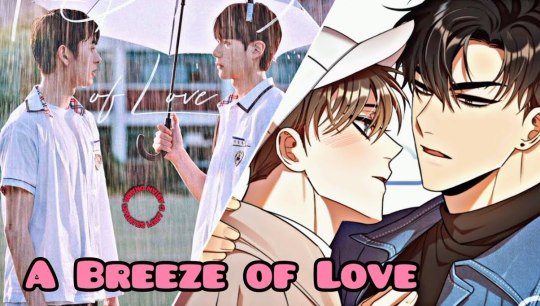
Ongoing Series - Not Thai
A Breeze of Love (Korea iQIYI) 1-2 of 8 - previously know as Weather Forecast Love this one popped up in MDL's currently airing, and I was like, what what? Basically: Tsundere insomniac grump and his sunshine jock ex bestie (human sleeping pill) who now hates him. Basketball is involved and I love it.
It ended, are we sad? REVIEWS
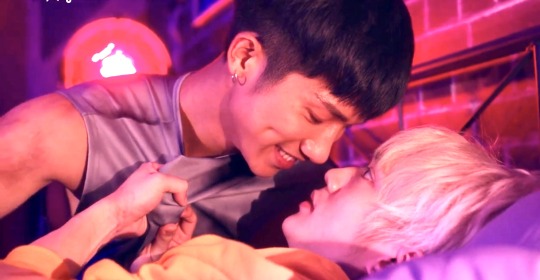
Kiseki: Dear to Me (Taiwan Viki & Gaga)
Yes, we sad! Ai Di and his dumb oversized sweaters and flappy flappy sleeves are EVERYTHING.
Final ep? Nice that the elder gays got screen time, more of this please? Sides dominated this finale, matched outfits and all. Also I’m living for the Bless this Mess shirt. Finally Taiwan gave us lots of biting and a counter lift. It’s like they know me!
Quick pitch for KDTM?
The plot is totally ridiculous and slightly unhinged, but that’s normal for Taiwan. It involves all the tropes under a very casual framework of gay mafia gangs + food = love. Absolutely every character is queer. There’s a gum-ball machine of cameos, elder gay rep, great chemistry from all pairs, and a KILLER side couple. As a result Kiseki is a poster child for Taiwanese BL, and I happen to love Taiwanese BL. Bonus? They also managed to END IT WELL, which we cannot expect from Taiwan. 9/10 HIGHLY RECOMMENDED
Triggers for knife play, child abuse, lingering trauma. I found both platforms did not do a great job on subs, but I will give the edge to Viki for pure usability.
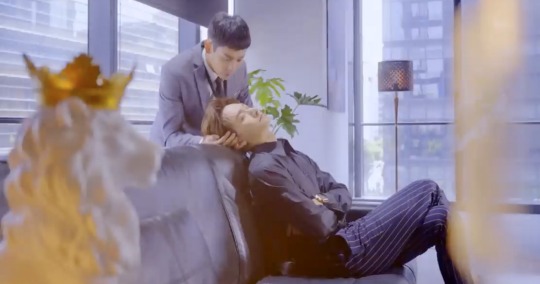
You Are Mine (Taiwan Viki & Gaga)
We are more disappointed than sad.
Far be it from me to extend this show, but we should’ve had 2 episodes of quality supportive boyfriends coping with family drama before the mom-confrontation climax and defense of the ESTABLISHED relationship. Baby's little speach had no power or impact coming where it did in this narrative, even though it was sweet. And while the make-out scenes were charming it mostly jsut felt like we'd squandered this pair. This last ep was good and rewatchable, but a series cannot be judged on its last ep alone.
Finally... could have used some side dishes. My vote? Lesbian secretaries!
Conclusion
I am sorry Taiwan, you know I love you, but I have to say it: this show was a mess of terrible pacing. And not a hot mess, sadly. I should have liked everything about this: it’s an office drama, it’s mature characters, it’s grumpy/sunshine, it’s a strong power dynamic, and it’s Taiwan - which means good chemistry. YAM was all those things and yet… something went horribly wrong with the narrative structure. You tried dears, but not hard enough. 7/10
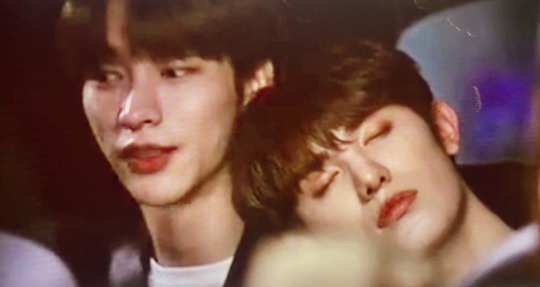
Bump Up Business (Korea Gaga)
Well, poop. Don’t have them speak English. Also no playing drunk. Meanwhile, all the manipulative gay drama. No kiss of course.
How do I summate this?
An idol group did the best they could with a script tailored to idols but which they were not allowed to fully realize because they are active idols in the same group. Ultimately it felt a bit like OnlyOneOf were just doing one of those Kpop skits for a variety show were two of of them dresses in drag/gay/BL and "ha ha isn't it funny?" I don’t know, it was fine? 6/10
stop wasting my time, Korea
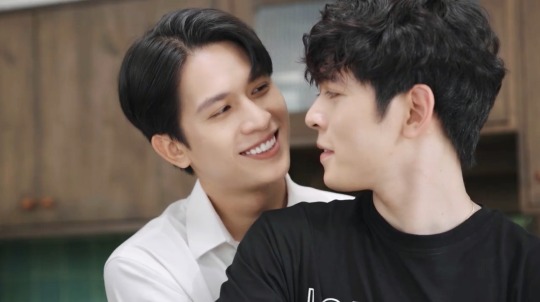
Mr Cinderella 2 (Vietnam YT)
DNF on the advice of several of my BL spies I will not be finishing this. Apparently it pretty much ends sad. Here's an explanation.
It's Airing But...
I Cannot Reach You AKA I Can't Reach You AKA Kimi ni wa Todokanai (Japan Tues Netflix-Japan & ????) 8 eps - in classic JBL fashion, I Cannot Reach You could not be reached. I will try it when I have some time and access to my home computer.
One Room Angel (Japan Gaga) 6 eps - adaptation of Harada’s manga (which I did not like) about a clerk who's stabbed, nearly dies, and returns home to find an angel waiting for him. With only 5 eps and a good chance this won’t end happy, I'm gonna wait and let you tell me how it goes.
WAITING FOR VERDICT OR TO BINGE
What Did You Eat Yesterday Season 2 AKA Kinou Nani Tabeta? Season 2 (Japan Gaga) 10 eps - I find this series more fun to binge, so I'm waiting until it completes its run.
SHADOW (Thai Gaga) 14eps - this is a horror BL with ghosts & paranormal elements in a boarding school setting. I'm not wild about Thai horror (or horror at all). It features Singto (who did paranormal BL He's Coming to Me) opposite Fluke N (who's done a couple horror's before). Also Fiat. Dan suffers from sleep paralysis, and in his dreams he sees a shadow that suffocates him. It gets worse when he transfers schools. I'm holding off on this one and if told it's good I'll binge watch.
Next Week Looks Like This

11/15 Let's Eat Together Aki and Haru AKA Aki wa Haru to Gohan wo (Japan Gaga) - this BL movie is coming to Gaga.
11/16 PLAYBOYY (Thurs ????) 10 eps - trailer here, high heat and it's helmed by Cheewin (shudder) with screenplay by Den (Only Friends) under Copy A Bangkok. It's gonna be a shizz show people. It's predicting Thai style "dark" (War of Y) one of my least favorites. Apparently there is a "plot" but when has Cheewin ever bothered with plot? A university kid who was involved with escorts, sex-trade, porn, online hook-ups, drugs, prostitution, blackmail, revenge, and so forth goes missing. His twin (sigh) and two friends look for him.
11/17 Pit Babe (Fri iQIYI) ep 1 of 14 - high heat teaser here, based on alittlebixth's omegaverse novel #พิษเบ๊บ’ set in the world of car racing (author says show will not be omegaverse). Charlie (fresh face), a young hot nerd, approaches his driver idol (Pavel "my love" 2 Moons 2) to borrow a racing car and win one for the team. Production house is new to BL but behind the Club Friday stuff. Show stars many known actors: Nut (Oxygen), Pop (Ram in La Cuisine), Pon (Phai in Gen Y, we LOVE him), Benz (twins in En of Love: This Is Love Story).
Thailand bring the November heat, I guess?
Upcoming November BL
11/19 Bake Me Please (Sun Gaga) ep 1 of 6 - trailer here, stars Ohm (of OhmFluke) opposite Guide (bestie from IFYLITA) and possibly also Poom (well known, but not for BL). This looks like an actually gay version of Antique Bakery (play it again, BL). Still, I'm intrigued, it looks HELLA pretty.
11/22 7 Days Before Valentine (Weds ????) ep 1 of 10 - trailer here, horror-esk. Adapted from y-novel of the same name, directed by Tu (180 Degree) stars Jet (Why You… Y Me?). When you want your old love again, but fate sends you a reaper instead. All he can do for you is kill people. I'll likely give this a pass and wait to binge if safe.
11/25 The Sign (Sat ????) ep 1 of 10 - trailer here, horror-esk, but with a suspense and adult characters. Special investigators who loved each other in previous lives reunite in new bodies. Stars Billy Patchanon (BillySeng) & Babe Tanatat (new). Includes other SCOY favorites as a special investigation team. I may give this a try because I'm into the non-horror bits.
11/26 The Whisperer (Sun ????) 1 of 10 - trailer here. Thai horror BL that ALSO involves cheating (what joy is mine). He has dimples (My Ride) but I don't think even that gives me the will. Maybe a binge for me.
11/26 Cooking Crush (Sun YT) 1 of 12 - OffGun are back, trailer here. Adapted from the novel “Love Course! เสื้อกาวน์รุกเสื้อกุ๊กรับ” by iJune4S this is about Prem who runs a not-so-popular restaurant with 2 friends. About to go on a cooking competition with a huge reward, Prem gets involved with Ten, a stressed-out med student who wants Prem to teach him to cook.
11/30 For Him (Thurs ????) ep 1 of 10 - high heat trailer, I suspect iQIYI will scoop this one up. From the people who brought us Unforgotten Night (please no) based on a y-novel, man nursing a heartbreak has a one-night stand, but the other boy didn't want it to end. It looks terribly trashy so I'm in! Maybe I'll do a trash watch?
VIP Only (Taiwan) - may be delayed/canceled
Wuju Bakery AKA Space Bakery (Korea) - this one may be DOA
A Breeze of Love (Korea) - I know less than nothing about this.
Nov 2023 line up with screen caps here. Not kept updated.
Original 2023 forthcoming BL master post (see comments, some are inaccurate, NOT KEPT UPDATED).
THIS WEEK’S BEST MOMENTS
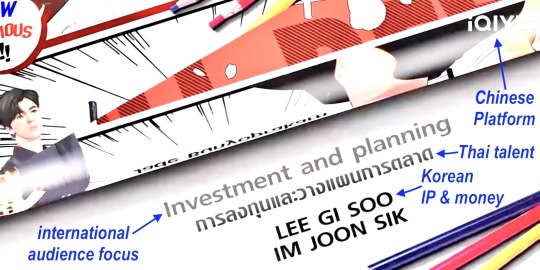
This is in the intro card of My Dear Gangster Oppa, I'm just amusing myself.

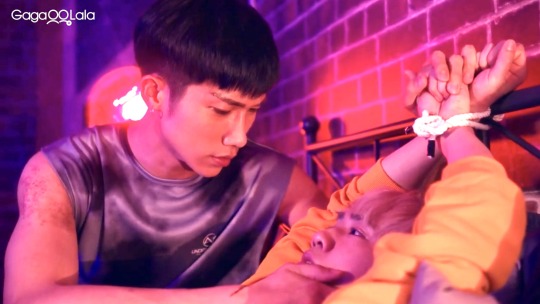
Thank you Keseki for givign this to us twice!
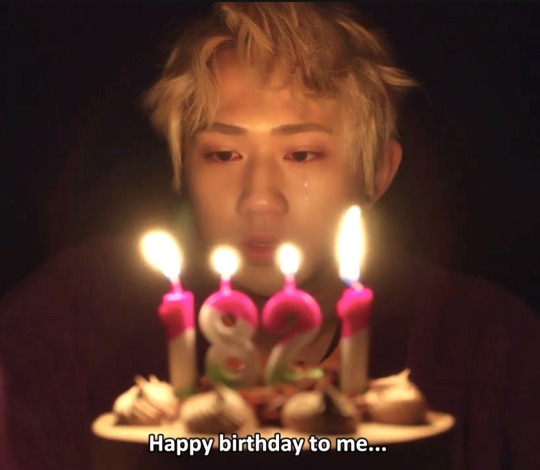
Also the tears! So pretty crying.
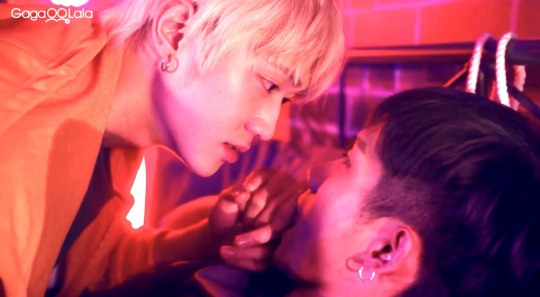
And, of course, my favorite the biting!
Have I mentioned recently how much I love Taiwanese BL?
(Last week)
#this week in bl#bl updates#bl review#2023 bl#upcoming bl#Kiseki: Dear to Me review#Kiseki: Dear to Me#Taiwanese BL#You Are Mine review#You Are Mine#Bump Up Buisness Review#bump up business#Korean BL#My Dear Gangster Oppa#Thai BL#Twins the series#middleman's love#TutorYim#new bL#Beyond The Star#a breeze of love#Let's Eat Together Aki and Haru
169 notes
·
View notes
Note
Hi! Been following you for a little bit now and your takes have made me think a lot about intent with gameplay in my own games. I was wondering if you have a recommendation. I have a homebrew 5e campaign that I've run before (it fell apart bc of player times conflicting) that I'm looking to revamp, but maybe a new system might be better to invest in. It's a story driven campaign with a defined end point. It's very much a traditional fantasy story. I love working collaboratively with players and have a heavy focus on roleplay and character development and sometimes find what 5e offers outside of combat lacking. I also find 5e's combat kind of monotonous. I also find the exp system kind of lacking as something rewarding for players, but haven't been able to wrap my head around alternatives.
Thank you in advance!! <3
I would personally check out Fellowship:
Fellowship is a PbtA fantasy adventure game about a fellowship consisting of the free people of the fantasy world going up against a big old evil overlord. The game very much supports a type of campaign play with a defined end-point (the defeat of the overlord) but with the players free to pursue various directions to come about that goal.
It's lighter on the crunch and heavier on characterization and mechanics that tie directly into characterization than something like D&D, and it also encourages various ways of overcoming obstacles. Characters can also build connections with the world and its people which actually manifest concretely and mechanically.
(also sorry for taking my sweet time to reply to this message, the past month has been a mess)
43 notes
·
View notes
Text
at the altar
previously i had thought there were only two weddings: the van and the reactor. however. there are four weddings and a funeral. because finding true love is hard, and the support of "friends" is essential. the movie has four "successful" weddings, one aborted wedding, and one funeral. the "successful" weddings all end in divorce. the funeral is for the partner of a gay man, but as this is during 1990s UK, they were not allowed to legally marry. it is explicitly said that they were "as a married couple". this funeral depicts "true love", but it's not "lasting" due to death. the one lasting, successful couple explicitly refuse to get married, and they are the only ones who have a family in the end.
the idea is that a "real wedding" cannot stand in for or replace real love and commitment. every single "real" wedding failed. in a line: beating out death--life after death--gives you forever, and no wedding gives you true love. in two senses: weddings literally don't replace love, and the lack of a wedding is defined as true love.
in dpw, there is no real wedding.
there is one failed funeral, in the reactor when everyone thinks they're dead. being joined in death is the only way to find forever; being joined in life is the only way to find love. to love forever, you must stand under god as one, reach forever by pledging yourselves "to death", and rise again together.
in biblical numerology, four represents stability and "freshness", aka "getting fresh" with each other in the sense of both insults and sex. insults, after all, get personal. character assassination is just a little ribbing joke between friends in this franchise. that's why there's four, and why they trade off roles.
wedding one:
in the movie Four Weddings and Funeral, there are actually five weddings held. the one that isn't counted as a "finished" wedding is where doubts were expressed during the ceremony that the groom loves someone else, and the bride dumps the groom at the altar.
wade dumps wolvie on the floor at paradox's altar after walking down the aisle with him.
paradox refuses to accept wade's proposal.
unlike in FWF, wade dumping wolvie wasn't about rejection. it was giving him a choice about whether he wanted to go through with this--to say "i do". he gets up and follows wade to "hell" of his own volition. for better and worse, right? they're joining at a low point because if you can't take him at his worst, you don't deserve to be his "best friend". this goes for deadpool and "worst" wolvie equally.
the "funeral" in this scene is paradox refusing to halt the death of the universe, insisting that everyone is going die eventually and there's nothing to be done about it. being sent to hell is also a literal death sentence, because no one is supposed to come back: it's forever.
this is an "aborted" wedding and a symbolic death, no funeral. wade pledged first but logan came right after.
wedding two:
the van. they make it to the altar, veil of seatbelts and all, but get driven away. they were dying to get there, too. what a shame.
a bower is both a wedding arch and a shady place under the trees. that's why they stop in the forest. they lay together, but not as one before the altar--no handholding here. they also didn't even get to the removal of the veil.
wedding three:
jumping into the marvel sparkle circle under the eyes of cassandra.
......jumping a "bundle of sticks" to a golden ring in the eyes of god.
while alioth, personification of death, is just a tick too late. not even the threat of death kept them from the altar. they weren't standing as one, together, though, so it's not a proper wedding.
in this one, logan wins the race: he falls first, and harder.
wedding four:
the reactor. down on their knees standing together under god: that's going to church. logan is the bride whose veil gets blown off.
it was supposed to be a funeral. paradox even gave them a eulogy. death did happen, and they thought it would last forever this time. but then they started a new life together, as one: marriage. they even said, repeatedly, "it should be me"-->"i want to be there for you"-->"i do". it could be read as both of them objecting that "you deserve better" while replying "but you're the one i want".
wade got to the altar first. even though it took logan longer to get there, he went at it harder.
this is the only wedding they got the whole way through, with all the necessary bits, and the only funeral. but it also wasn't a real wedding and the funeral didn't stick: that's how you get real forever love with four weddings and a funeral.
27 notes
·
View notes
Text
The panel below is probably one of my favorite panels of Chigiri.
It encapsulated how intense and driven his character could be. Even Nagi was drawn and fired up with those expressive eyes alone.

I'd like to see more of Chigiri looking like this in the main manga but we will never going to get it except in Episode Nagi because the main focus now is having Nagi's character further develop in NEL arc.
I always salute the author and illustrator for always giving an in-depth characterization and illustration to his character. I've always said this before but Chigiri's eyes is one of his biggest assets and is one of the most beautifully drawn in the franchise.
He doesn't speak a lot of words but his eyes can be really telling of how he feels at the moment.
He has gone a long way from being a taciturn and crestfallen character to being one of the most determined and confident characters in the franchise.
I just love that in his own way, he was able to influence characters in a positive way like Nagi for example who thinks he's cool after learning of his injury but is still striving to be the best there is. Also, for motivating Reo in the second selection in a backhanded way to keep going and have his own revenge to climb his way up to the program.
A lot of people in the fandom might find him boring or ordinary or even accuse of people liking him because of his looks. If that were the case, I'd have pander to every character in the franchise who is visually attractive in there a long time ago.
If you find him not interesting enough then that means his personality is not for you or you haven't got enough time to truly understand his character. He's one of the most complex yet realistic characters in the franchise who is not solely defined by his injury nor by the loss of Kunigami himself in the second selection.
He's kind but he's also sassy, assertive, competitive and cocky sometimes. And it makes him well-rounded because he doesn't fit the stereotype of a nice, ikemen character.
*sighs*
I'll just count the days till we got to see a new chapter of Episode Nagi but until then I'll remember on why he is my best boy starting from day 1.
#blue lock#bllk#blue lock spoilers#episode nagi#chigiri hyoma#nagi seishiro#bllk chigiri#hyoma chigiri#hyoma
22 notes
·
View notes
Note
hi sam ok now i would love to know if you have any jji hot takes 👀
KJSDBVDKJFBV trying to get me #canceled i see i see /jkjk
i kind of only have one really Hot Take i guess (i have an uncountable amount of opinions but those have been said before by myself or others, or are just... yknow. vibes and feelings and preferences), and it's that:
gege is a character writer, specifically with an emphasis on character relationships (mirrors, foils, family, [perceived] romance, etc.), but he is not particularly skilled at plot (and specifically seems to struggle with balancing story within the plot), and i think a lot of the current animosity towards jjk would not exist if he had really buckled down on and maintained the level of character-centered storylines that we got at the beginning.
i will elaborate under the cut bc i don't think everyone needs or wants to read my thought processes KJSDBVJKDBV
jjk, in my opinion, has a very clean dividing line that is Everything In The Beginning and then Everything Post-Shibuya. up to the end of the shibuya incident, the story is character-driven (though a bit fast-paced, it still manages) and has a very clear and defined goal (not for the characters, though they also have their own motivations, but for the plot): get yuuji to eat all of the sukuna fingers, and then execute him. obviously a story has to story, so there are antagonists getting in the way, and there are underlying themes and actions that make that goal more heartbreaking, but it is laid in stone right away that there is no happy ending here (yuuji will die) and the best we should hope for is happy memories along the way, while the best we can hope for is the characters figuring out a way to get around this doomed reality. we had a great main cast and a through-line for the plot and, most importantly, circling themes of character/relationship mirrors, cycles in general, and the connecting thread between power and a severing or loss of humanity (which all created a story).
there's a reason so many readers are unhappy with the culling game arc and the sukuna fight, and i think that reason is the really hard pull away from characters being able to drive the story (it's a little bit about pacing too, i think, because the culling games were long and boring, and the sukuna fight has equally been long and predictable). i truly think the worst mechanical decision gege made for jjk was separating the main cast during the culling game arc. it created a "need" to introduce a million new (pointless) characters, and all it did was underline and emphasize that character (as a writing tool) doesn't actually matter to the story anymore.
like objectively it's not... bad. there is (probably) a plot that he's following, and he (probably) has an end-goal in mind and a conclusion that he is gunning towards. he is maintaining continuity and wrapping up loose threads that were mentioned in previous chapters. things are linked. but like.... it's just so, so hard to care about what's happening in the plot right now because A) so much tragedy based around characters we don't know has only made me exceptionally numb to everything gege decides to do now, and B) we the audience have been seated next to the narrator instead of next to yuuji or gojo or yuuta or whoever. it's soooo drawn back, it's so far away from character. and i think that was just.... a really bad decision.
anyway, i think, all else equal, jjk would be on better footing right now if gege had decided to maintain the writing from Pre-Shibuya and stick to a character-driven plot. at least all of the carnage would mean something, then 🤷
#i will not be debating this 🙅 JHSKDBVKJDFBV#it's my opinion it's my hot take#i don't want any 'the point of it is indiscriminate tragedy' in my inbox#this is my hill i've planted my flag and i shan't be moving#had to stop myself from writing a whole book actually. i deleted several paragraphs JHSBDVJKDBVJKB
46 notes
·
View notes